Shows

Africa Climate Conversations.COP27: Africa must do more to push for Climate Justice.Africa is a continent hard hit by climate change though least emitter. Erratic rains and floods, prolonged droughts, climate related migration and conflict, combined with Covid-19 are exposing nations to further debts.In addition, the continent being energy deficient, many nations lack energy base load. In line with the Paris agreement, is Africa being pressured to abandon its use of fossil fuel energy while developed countries facing energy shortages and rising costs for fuel and electricity, due to Ukraine Russia crisis turn back to more and dirtier fossil fuels? who is shaping the climate justice narratives. Is Africa doi...
2022-07-1931 min
Africa Climate Conversations.Kenyan pastoralists on edge due to drought.Drought situation continues to worsen in Kenya. In Kenya’s Rift Valley, local says they last harvested since 2018. This year it has rained for four days. Cows have died, goats – their remaining source of food - are dying of diseases. The Worse hit are nineteen of the 23 Arid and Semi-Arid Land counties. The UN Office for the Coordination of Humanitarian Affairs says the number of people in need of assistance increased from 3.5 million this May to 4.1 million in June 2022. Rainfall failed in 2020, performed poorly during the 2021 short rains and cased early during the 2022 march to May long rains season. List...
2022-07-0517 min
Africa Climate Conversations.Endorois women in Kenya rally villagers to save community swamp.Kenyan minority indigenous community - the Endorois live around Lake Bogoria in Baringo County in Kenya's Rift valley. In 1970's they lost their grazing ground when Lake Baringo was registered a national reserve. The remaining swamp - Kiborgoch or Loboi swamp stated shrinking in the 1990's due to land degradation and wildfires. The Women depend on the swamp to collect Papyrus reeds they use to make sleeping mats, leisure mats, sofa sets, and roofing materials. The swamp is a source of food and medicine and a dry season grazing area for the community. They rallied the community t...
2022-06-1429 min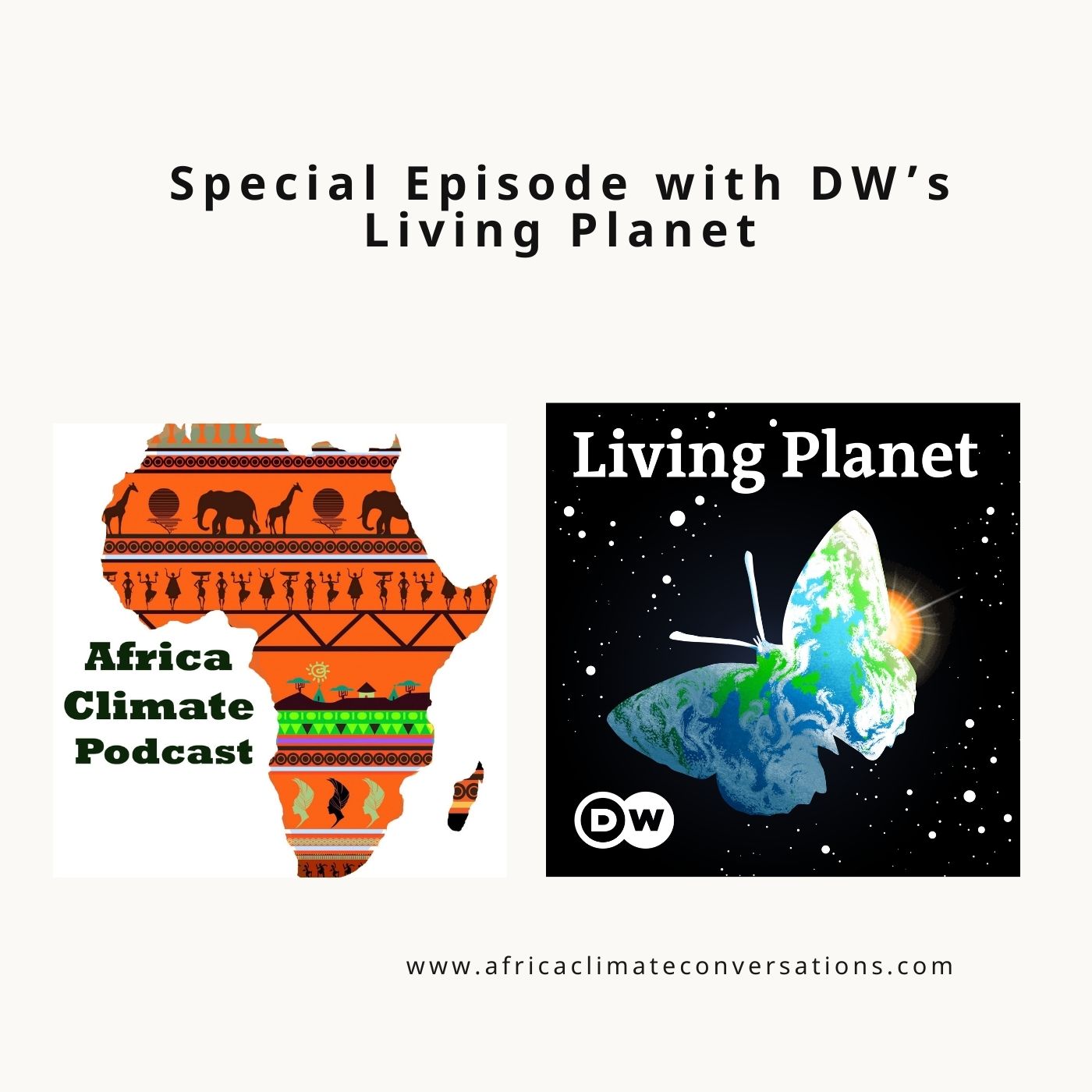
Africa Climate Conversations.Special Episode with DW’s Living PlanetToday in a special program swap with DW- Living Planet we here how climate change is impacting women in girls, in Kenya. As temperature continue to rise, how is it impacting people's mental health in South Africa? How about the peatlands in the Democratic republic of Congo?
2022-05-3130 min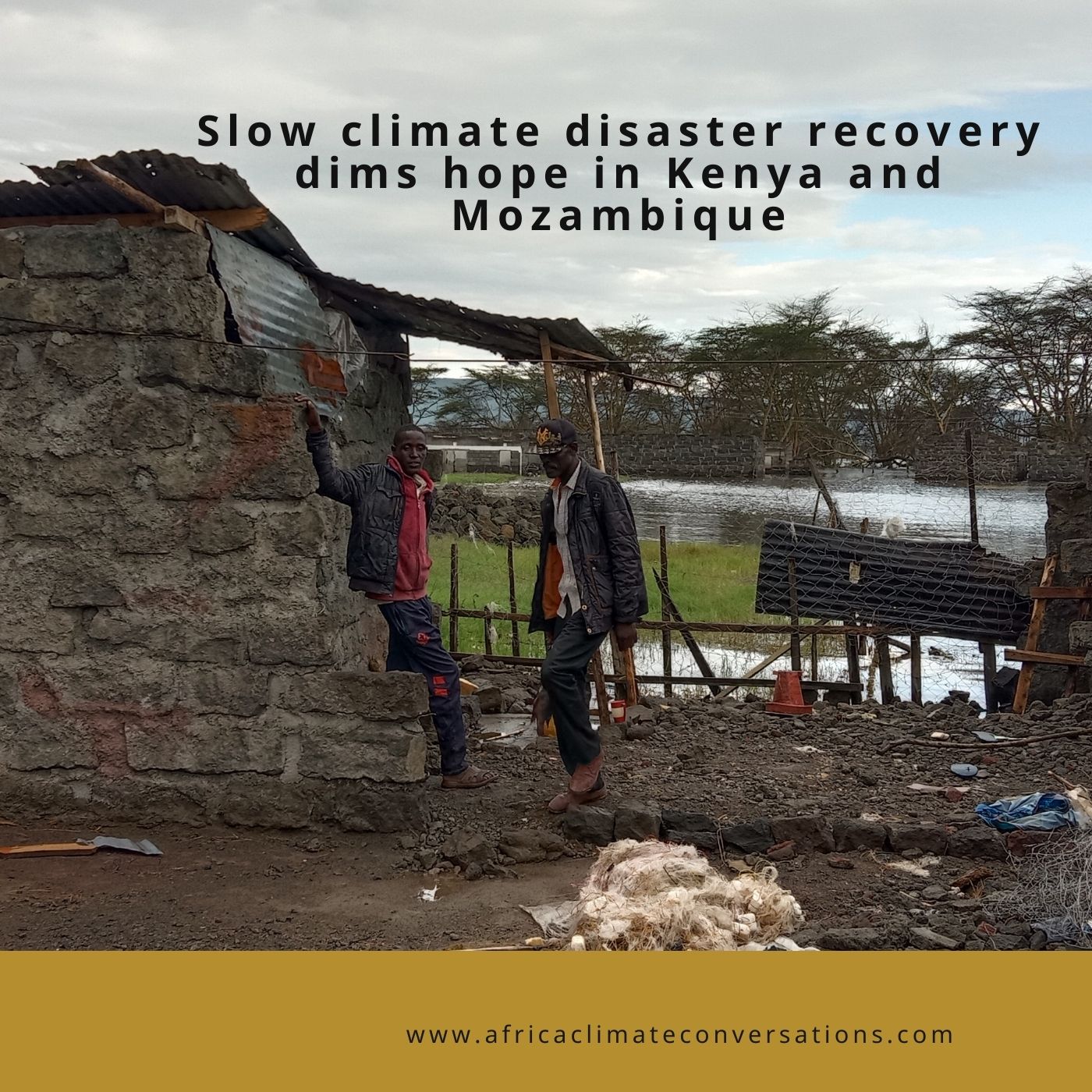
Africa Climate Conversations.Slow climate disaster recovery dims hope in Kenya and MozambiqueIntense floods, cyclones, and drought, have devastated many sub-Saharan African countries, this year.As temperature rise, so does the losses in livelihoods and damages to key infrastructure hampering development and country planning.In Kenya, Ethiopia, and Somalia, rains have failed consecutively. By March 2022, more than 13 million people were severely food insecure.Tropical storms and cyclones this year alone that has damaged homes, roads, water, and power infrastructure, schools, and hospitals in Madagascar, Mozambique, and Malawi. Madagascar alone has experienced four major storms since late January.Last year in Glasgow, UK, the...
2022-05-1720 min
Africa Climate Conversations.Early warning services saves lives and economiesBetween 1970 and 2019, more than 11 000 disasters were attributed to weather, climate, and water-related hazards worldwide. This was reported by the World Meteorological Organization (WMO) in a 2021 report on mortality and economic losses from weather, climate, and water extremes. These disasters left over two million people dead. It also resulted in economic losses of $3.6 trillion. However, one in three people are still not covered by early warning services, while that number is almost twice as high in Africa. The episode explores why access to early weather alerts equals better communities and economies
2022-05-0323 min
Africa Climate Conversations.Kenyan middlemen killing research funds flow to researchers.Professor Paul Kimani, a plant breeder and lecturer at the College of Agriculture and Veterinary Sciences at Kenya's University of Nairobi, has extensively researched a variety of drought-tolerant beans in Kenya. Over the years, his research has been made possible by funds from overseas. Professor Kimani says the Kenyan government has tried funding research, but intermediaries are killing the research flows between government and the researchers. “The current government allocated five billion to research, but 4.5 billion was returned to treasury as researchers could not access it. How do you convince the same government to allocate another fund when what is...
2022-04-1944 min
Africa Climate Conversations.How Kenyan and Seychelles youths are solving the plastic menaceKibera- the biggest informal settlement in Kenya and possibly in the African continent. According to UN-Habitat, Kibera has the highest settlement density of any settlement in Kenya estimated at 250,000 people. Today, we speak to Stephen Oduor, the founder Kibera Plastic initiative - a youth-led community-based organization ridding the slum of plastic waste. The informal settlement has generally a poor system of solid waste management. With waste mainly dumped in open areas, Oduor says Ngong River has long been a leading dumping site for the locals. Kibera plastic initiative cleans Ngong river monthly, collecting plastic waste and...
2022-04-0521 min
Africa Climate Conversations.Second-hand clothes(Mitumba) Kenyan gift or a curse?In 2019, Kenya imported 185,000 tones of second-hand clothing or mitumba - about 8,000 containers. The clothes and shoes sold in the second-hand markets started as donations from rich nations to charitable organizations meant for developing nations. But over the years, the second-hand industry grew from donations to a market amounting to paid taxes of about Ksh12 billion in 2019. Unfortunately, these clothes are becoming a hazard in the afterlife. They are either burnt, adding toxins to the environment, or dumped in landfills and clogging waterways. Africa collect textiles (ACT), collects and recycles used textiles and footwear in Kenya and Nigeria. I...
2022-03-2235 min
Africa Climate Conversations.Kenya's capital city's poor planning worsening air quality.Urban development in Kenya's Capital city, Nairobi, started when Nairobi was established as a railway headquarters in the late 19th Century. Despite numerous attempts at planning, Nairobi has operated for decades without a plan. Until 2014 when the Nairobi Integrated Urban Development Master Plan (NIUPLAN) expected to guide the city until 2030 was drawn. NIUPLAN comes after the 1973 Metropolitan Growth Strategy, which legally expired in 2003. Lack of finance, lack of commitments, and political will saw most of the 1973 strategy recommendations go unimplemented. Currently, most infrastructure developments being implemented were proposed by the 1973 strategy. Over the years, unplanned de...
2022-03-0835 min
Africa Climate Conversations.Adaptation cannot lag anymore: warns IPCC Scientists.The IPCC has released the Working Group II report prepared by 270 scientists from 67 countries on the latest evidence on the impacts of accelerating Climate Change on humans and nature. Africa has contributed among the least greenhouse gas emissions, but countries like Madagascar requiring USD1B annually to adapt to climate change are heavily impacted by subsequent storms and cyclones. Climate Change impacts different regions in Africa differently, but IPCC project's the continent's temperature increases to be higher than the global average. Adaptation in Africa has multiple benefits but requires finance among critical issues for the...
2022-02-2821 min
Africa Climate Conversations.Nairobi's billboards live streaming the city's air pollution.Tiny particles in the air reduce visibility. Also, cause the air to appear hazy when levels are elevated. Often referred to as PM2.5, the particles can travel deeply into the respiratory tract, reaching the lungs. Exposure to fine particles can cause runny nose, shortness of breath, sneezing, eye, nose, throat, and lung irritation, as well as coughing.
In today's episode, I host Sean Khan, the Global Environment Monitoring System Program Manager at the UN Environment, Owen Ombima, Safaricom Environment Manager, and Lawrence Mwangi, the Nairobi City County Deputy Director of Environment.
The Nairobi City County...
2022-02-2133 min
Africa Climate Conversations.Sectors in Ghana join hands to reduce rising air pollution.Ghana’s air quality monitoring started back in 1996. Over the years, different sectors have joined hands to curb air pollution emanating from the transport sector, and solid waste management of which 60percent is collected.
Additionally, dust storms from the northeast of Africa and extraction of precious minerals from e-waste has led the country to set up air quality monitors every four kilometers along the industrial, residential, and commercial areas.
Today on the air pollution series, Ghana’s Environmental protection agency acting director, Emmanuel Appoh, tells us how the years of air quality monitoring have informed poli...
2022-02-1433 min
Africa Climate Conversations.It is time Africa rethinks air pollution funding.Africa attracted about five percent of development funding and less than four percent of philanthropy funding to fight air pollution between 2015 – 2020 according to the 2021 report. Most sub-Saharan African countries are highly in debt. The 2022 international debt crisis report shows that sub-Saharan Africa's debt rose from $665 Billion in 2019 to 702B. With most of the funding is in the form of loans, how can governments fund monitoring and curbing air pollution without getting their nations deeper into debt?
2022-02-0737 min
Africa Climate Conversations.Why are air pollution policies not translating into actions at the village level?Cities in Africa are fast-growing. Sub-Saharan Africa is projected to have 13 megacities by 2100. A 2021 UN Environment report on Air Pollution and Development in Africa shows that outdoor air pollution was responsible for an estimated nearly 400,000 deaths across Africa in 2019.
Economically, countries like Ethiopia, Ghana, and Rwanda annually are recurring losses in the economical production of between 0.08 and 0.3 per cent of gross domestic product. Sucking in dirty is the leading cause of sick and unproductive workers.
In 2019 Ethiopia lost approximately $2.71 billion, Ghana $1.38 billion in Ghana, and Rwanda $308 million in output due to air pollution-related premature death.
...
2022-01-3133 min
Africa Climate Conversations.Dirty Air: Dirty Blood!Did you know that you breathe about 150 liters of air daily and that the air you breathe goes directly to your lungs and bloodstream? Dr. George Mwaniki, the head of Air Quality at the World Resources Institute (WRI) Africa, says breathing in dirty air sucks in tiny particles that can damage lungs, hearts, and brains.
The world health organization reckons that reducing air pollution levels can reduce the burden of diseases like stroke, heart disease, lung cancer, and chronic and acute respiratory diseases, including asthma. In 2019, 1.1 million people died due to air pollution in Africa. Globally, air p...
2022-01-2424 min
Africa Climate Conversations.Welcome Back: Lets talk about air pollution in Africa.Africa’s growth has been accelerating for the last twenty years. Before the Covid-19 outbreak, Africa was on track to more than triple its population this century. While this growth is excellent, it brings enormous air pollution challenges.
Air pollution is one of the most significant environmental risks to health. The world health organization reckons that reducing air pollution levels can reduce the burden of diseases like stroke, heart disease, lung cancer, and chronic and acute respiratory diseases, including asthma.
So, the three months series be about air pollution in Africa. We will investigate different sou...
2022-01-1706 min
Africa Climate Conversations.A Kenyan school taking the extra mile to raise school fees for its needy students.A recent report on education by the United Nations Educational, Scientific and Cultural Organization (UNESCO) shows that 1 in every three families in Kenya and Uganda borrows money for school fees. Meet vulnerable students from Njumbi High school in Murang'a county in central Kenya whose parents cannot afford to raise their school fees since joining the school.
The school office of the Champlain asked the school managed to allow it to manage the school canteen to help raise the fees that cater to these students' school fees, uniform, pocket money, or logistics to and back from school. What a...
2021-12-1309 min
Africa Climate Conversations.Covid-19 economic impacts, mental health and drug abuse among Kenyan students.This December, I thought it best to look back into our communities as we approach the holiday season. Today, this episode highlights the economic impacts Covid 19 has had on schools, drug surges, and mental health impacts.
As of November 2020, the World Bank data shows that the COVID-19 pandemic pushed an estimated two million people into poverty in Kenya. The economic and social disruptions induced by the pandemic would be evident this year during form one student registrations at Njumbi High school. Njumbi High school is located in Murang’a county in Central Kenya, about a two-and-a-half-hour drive fro...
2021-12-0607 min
Africa Climate Conversations.Climate Finance must be distributed in a Gender responsive way.Annually, nearly 20 million people leave their homes due to climate-induced displacement, according to the United Nations High Commissioner for Refugees. 80 percent of those displaced are women and girls
Women are key agents of change, but education is vital in developing required leadership traits. During the Gender Day celebrated during the just-concluded UN climate summit (COP26), the need to make climate finance more gender-responsive was noted as key.
In today's episode, Camille Quénard, a gender expert specializing in Africa's climate change sector for a multilateral development bank, talks about the links between gender and climate ch...
2021-11-2913 min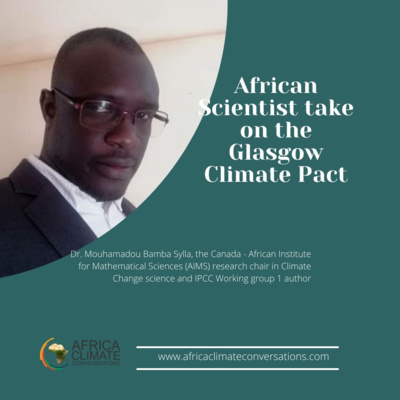
Africa Climate Conversations.African Scientist take on the Glasgow Climate pact.The Intergovernmental Panel on Climate Change (IPCC) latest report on global warming clearly shows that human influence is responsible for warming the atmosphere. In today's conversation, Africa Climate Conversations ask Dr. Mouhamadou Bamba Sylla, the AIMS-Canada Research Chair in Climate Change Science at the African Institute for Mathematical Sciences Rwanda, if the pledges made at the just concluded 26th UN summit on climate change (COP26) in Glasgow lead to reduced warming.
One hundred four countries, among them the United States of America and the European Union, pledged to cut their methane emissions by 30 percent by 2030. Africa is...
2021-11-2213 min
Africa Climate Conversations.It's time for the African Union to lead Climate Negotiations for Africa, says Climate Negotiator.Africa is the most vulnerable to climate change and among the most impacted by climate change. Under the international climate negotiations, the continent negotiates as a group under the African Group of negotiators (AGN) on climate change.
However, 33 African countries are classified as Least Developed Countries (LDC). The countries negotiate under the LDC negotiating stream under the United Nations Framework Convention on Climate Change (UNFCCC) process.
Since Paris, during the 21st UN climate conference under the President of the UN Climate Change Conference in Paris (COP21) Laurent Fabius, Africa was promised that its special needs a...
2021-11-1541 min
Africa Climate Conversations.COP26: Where are we on Climate finance and NDC timeframes?For the world to achieve the Paris agreement goals, climate finance which has been a contentious issue under climate negotiations, is critical. Also, implementing national commitments or NDC's is essential. Negotiators have been discussing long-term finance and the common time frame by which NDC's communicated by countries must be implemented.
Today, Ambassador Mohamed Nasr, a former African Group of Negotiators Chair, and the current lead negotiator on finance explains where negotiations are on finance. Later on, Kassim Gawusu Toure, a climate activist and a junior negotiator with the AGN, will explain what common time frames are under...
2021-11-0925 min
Africa Climate Conversations.Adaptation facing Resistance at Glasgow.Africa is the continent most vulnerable to climate extremes. The IPCC six assessment report (AR6) confirms the continent warms faster than the global average over both land and oceans. From experiencing the hottest weather in Egypt this August that has occurred in the last 50 years to cyclones and heavy rains that resulted in higher-than-normal vegetation growth providing ideal conditions for desert locusts in the horn of Africa.
Unfortunately, Mariam Allam, the Adviser to the African Group of Negotiators on Climate Change (AGN) on Adaptation and a member of the UNFCCC Adaptation Committee, told the Africa Climate Conversations P...
2021-11-0127 min
Africa Climate Conversations.Africa at COP26: Our PositionCovid 19 has already demonstrated the availability of funds when a crisis occurs. Unfortunately, a report by nature shows that when it comes to providing finance for the climate crisis twelve years since Copenhagen, when developed countries promised to make available USD 100 billion annually for poor counties to address the climate crisis, it is clear - we are not yet there. However, a September OECD assessment of progress report indicates that developed countries provided and mobilised USD 79.6 billion in 2019. The goal was to have been met the USD 100 billion mark annually in 2020 and to be sustained to 2025.
The A...
2021-10-2645 min
Africa Climate Conversations.Raise your NDCs ambitions: Africa's key ask to developed countries.The climate emergency is worsening. The world has witnessed record-high temperatures, widespread wildfires, and increasingly unpredictable floods and droughts. IPCC report on climate science is unequivocal; human activity is to blame. The report reinforced the absolute urgency of closing the 2030 emissions gap if the world limits warming to 1.5°C.
The Nationally Determined Contributions (NDCs) are countries' commitment stipulating how countries plans on cutting their emissions in half by 2030 and reaching net zero by 2050. Hence, NDCs are vital in achieving the Paris goal. The Paris goals aim to limit global warming to well below 2, preferably to 1.5 degrees Celsius, co...
2021-10-1936 min
Africa Climate Conversations.Paris Agreement: Why Africa needs its special needs recognised.The Kyoto protocol recognised Africa for its vulnerability to climate change. But under the Paris agreement, Africa lost that recognition. The African Group of Negotiators on Climate Change (AGN) says Africa's special needs and circumstances need reinstating. Home to 17 percent of the global population, Africa contributes less than four percent of global emissions and is the most vulnerable continent to climate change. Already experiencing 1.8 degrees warming - according to the World Meteorological Organization (WMO), the AGN reports show adapting to climate change is already costing the continent between three and nine percent of their annual GDP.
Unfortunately, t...
2021-10-1230 min
Africa Climate Conversations.Climate Change Negotiations: The History.This episode marks the beginning of building momentum to the 26th United Nations Climate Change conference also known as COP26.
We start by contextualizing the current climate change negotiations by looking back to where it originated and how it has evolved. To walk us through that journey, I am joined by a James Murombedzi, a climate change policy and governance expert. COP26 is scheduled in the city of Glasgow, Scotland between 31 October and 12 November 2021.
Have a listen and please send your contribution to info@africaclimateconversations.com or through Twitter, Facebook, and Instagram. We are on so...
2021-10-0543 min
Africa Climate Conversations.The Journey to COP26: Building MomentumThe 26th annual UN climate conference will occur between 31 October and 12 November this year in Glasgow, Scotland.
Did you know that the climate journey did not start at COP21 with the Paris agreement in 2015? In June 1972, the first world conference to make the environment a critical issue was held in Stockholm, Sweden. That is the United Nations Conference on the Environment.
Twenty years later, in Rio de Janeiro, Brazil, the United Nations Conference on Environment and Development was held in June 1992.
Among the five global agreements signed then was the Convention on Biological D...
2021-09-2807 min
Africa Climate Conversations.Green Recovery: Why invest in Africa?Africa representing over 17 percent of the world population, is responsible for less than four percent of global emissions. But the continent has significant assets in terms of carbon sinks. Jean-Paul Adam, the director for Technology, Climate Change, and Natural Resources at the UN Economic Commission for Africa (ECA), says the Congo basin alone accounts for three years’ worth of global emissions in its capacity to absorb carbon dioxide.
Africa’s agenda 2063 aims at industrializing the continent. But given the temperature rise globally, the continent has to develop but in a low carbon way. Hence, the continent might require...
2021-09-2134 min
Africa Climate Conversations.Meet a Kenyan Primary school equipping children with green skills.A 2021 report Climate Crisis Is a Child Rights Crisis by the United Nations Children's Fund (UNICEF) notes that today's children and young people face an uncertain future because of the impacts of climate change.
Globally, almost every child on earth is exposed to at least one climate and environmental hazard, shock, or stress such as heatwaves, cyclones, air pollution, flooding, and water scarcity. Creating an incredibly challenging environment for children to live, play, and thrive.
In Africa, young people living in the Central African Republic, Chad, Nigeria, Guinea, and Guinea-Bissau are the most at risk.
2021-09-1414 min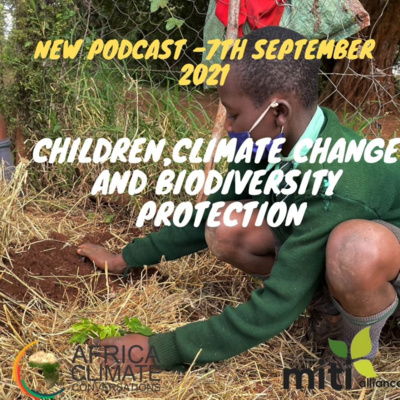
Africa Climate Conversations.Children, Climate Change, and Biodiversity ProtectionThis week, we are talking about empowering children to conserve biodiversity and the environment. It is what Miti Alliance has been doing for the last nine years.
Miti Alliance is a social enterprise focusing on planting and growing trees across schools, forests, communities aimed at planting five million trees by 2025
In 2020, the Miti alliance worked with 71 Schools, planted 50 kitchen gardens, trained 80 youths & women, and planted 10200 tree seedlings via the Miti Schools program, and distributed 81000 seed balls.
Miti Alliance teaches children to plant and grow trees in their schools. In addition, they are collecting i...
2021-09-0721 min
Africa Climate Conversations.Can charcoal production be sustainable?Did you know that a third of Africa's forests have already been lost, mainly to charcoal production? Yes, that is according to the world forest organization.
In Kenya, the Center for International Forestry Research (CIFOR) notes that more than 70 per cent of the domestic energy demand for cooking and heating has been met by charcoal over decades. For a ton of charcoal produced, about ten tones of wood are used.
But, can charcoal be produced sustainably? Listen to Mary Njenga, a Bioenergy Research Scientist at World Agroforestry (ICRAF) on todays episode.
2021-08-3113 min
Africa Climate Conversations.Kenyan entrepreneur turned to Greener Charcoal to save her poultry.Today we are in Kenya's Nakuru County in a town named Mai Mahiu meaning "hot water" about 60kms drive from Nairobi City.
Here we meet Lydia Njung'e, the CEO of Eversave Briquettes Limited.
Since 2010, Njung'e has been using agricultural waste materials for manufacturing briquettes. The business started after Njung'e; then, a poultry farmer lost over 2000 birds overnight to carbon poisoning. While seeking advice from the Kenya Agricultural and Livestock Research institute, Njung'e was advised to use briquettes instead of traditional charcoal and her birds mortality rate dropped to zero.
Njung'e would be called...
2021-08-2409 min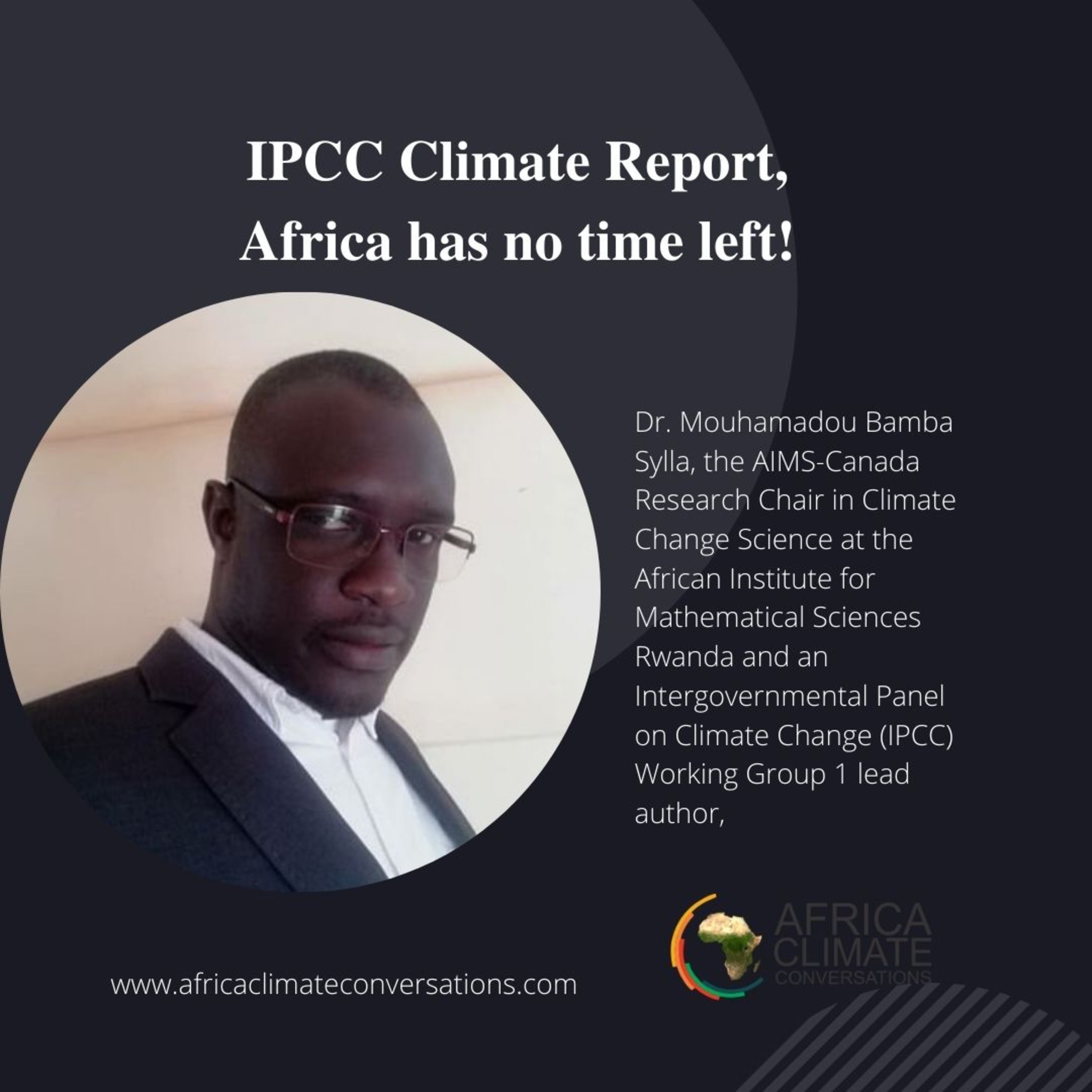
Africa Climate Conversations.IPCC Climate Report, Africa has no time left!Human activities have warmed the climate at an exceptional rate as per the latest UN’s climate science report on the physical changes globally and expected to occur.
The report on the physical science basis is the first outline of the three expected for the sixth assessment report.
Publication of the second and third reports looking at how to adapt to these impacts and prevent the worst-case scenarios are expected early next year.
What does this report mean for Africa?
2021-08-1716 min
Africa Climate Conversations.Kenyan youths transforms a top crime landfill hotspot into a green space.Korogocho is one of the largest slums neighbourhood’s northeast of Kenya’s city center. It is home to nearly 200,000 people. We are precisely at the Canaan bridge where the Nairobi river separates Korogocho slums and Dandora suburbs, home to Nairobi's main dumping ground – the dandora dumping site.
Here, a group of youths known as Komb Green Solutions has reclaimed a landfill by the Nairobi River. A recreational park now occupies the park transforming the bridge once known as a crime hotspot to Korogocho haven where the community finds rest. The park is her children's official playground and ac...
2021-08-1018 min
Africa Climate Conversations.Meet Kenyan farmer rearing fish and black soldier fly using the smallest available space.The United Nations Food and Agriculture Organization (FAO) says that the world population is expected to grow to almost 10 billion by 2050. Further, by 2050, in every five children born, two will be born in Africa.
Already, the rate of urbanization in Sub-Saharan Africa is unmatched compared to the rest of the world. The urban population is expected to nearly triple to 1.34 billion people by 2050.
Population increase means rising demand for food and increased pressure on natural resources such as land by which we grow food.
In Kenya, John Mwaura Kiriko, a businessperson from Kikuyu to...
2021-07-2715 min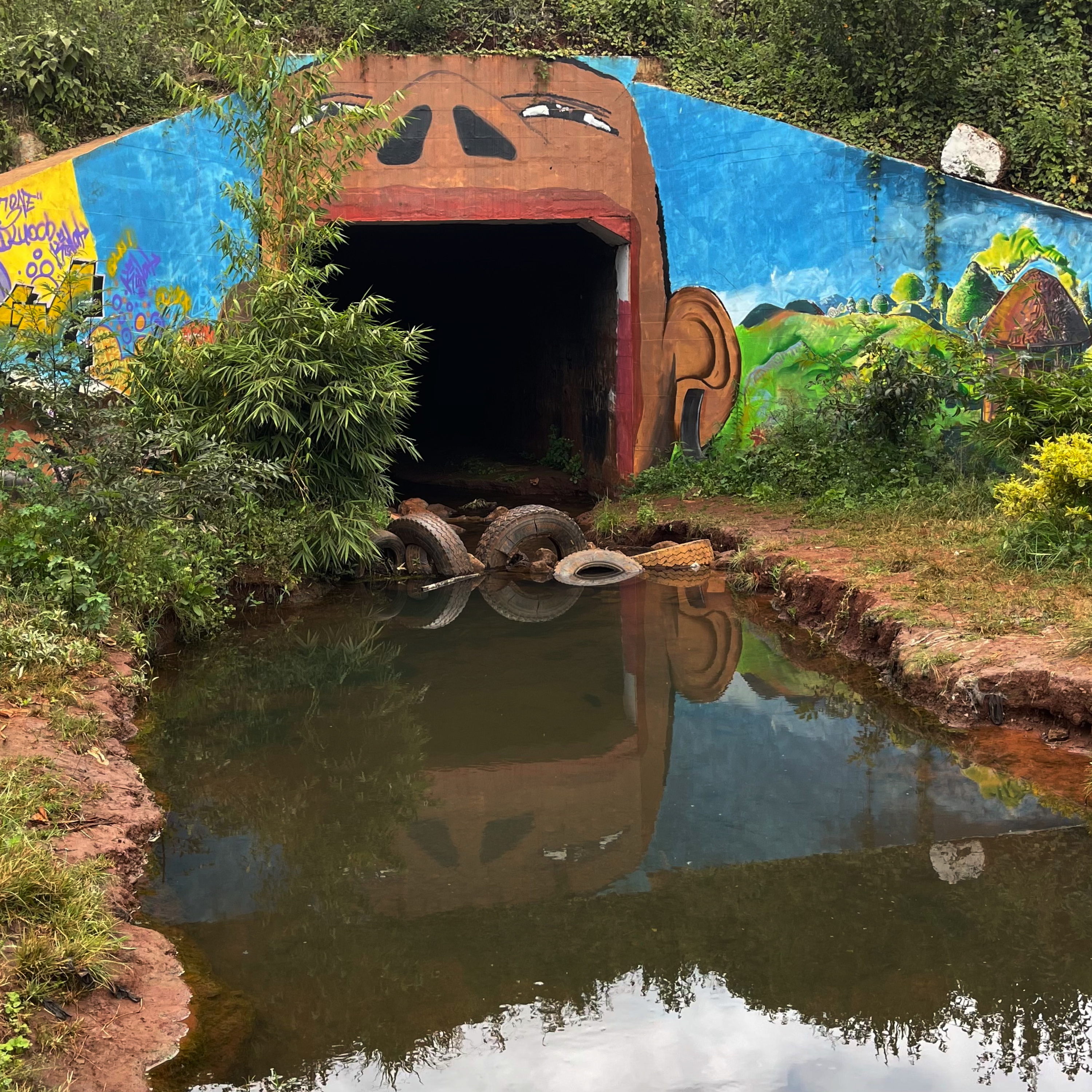
Africa Climate Conversations.Saving Kenya's capital city water source, the Ondiri WetlandIn 2016, the Nyongara River flowing out of the Ondiri Wetland in Kikuyu town, Kenya about 20 kilometres from Nairobi city, nearly dried up.
Raw sewerage from Kikuyu town drained at the Wetland. Forty-four greenhouse farms around the wetland abstracted water unregulated. Additionally, solid waste dumpsters had found a new dumping site.
Fodder harvesters harvested grass around the Wetland, burning the area during the dry season, killing birds nesting and their young ones while destroying other Flora and Fauna.Friends of Ondiri wetland Kenya, rallied communities and farmers around Wetland. Faith-based organisations, civil societies, the business community...
2021-07-2017 min
Africa Climate Conversations.Waters of hope awakens the fish business at Uganda's Lake Edward.We are at the Rwenshama fish landing site in Uganda at the shores of Lake Edward, one of the smallest African Great Rift lakes lying in the Western Rift Valley. Shared between the Democratic Republic of Congo and Uganda
Though existed since the '50s, there has not been a toilet or clean water. Fishers and traders defecated at the wetland next to the lake. Fish was actioned on a carpet laid on bare soil and sold off without cleaning.
Fishing was unregulated. Over-fishing, inappropriate gear and methods, pollution, and land degradation saw fish stocks d...
2021-07-1314 min
Africa Climate Conversations.Eating wild fruits, protecting Niger’s indigenous landscapes.A 17-year-old secondary school student from Niger's 2nd largest city Zinder Faiza Habou and her mother earn a living out of cracking nuts and pounding wild fruits on contract under the Sahara Sahel foods.
"These fruits were a delicacy back in the village while growing up. My mother worked as a house help to feed and educate our family of 12 children until the packaging of the wild fruits started in 2014," Habou told the Africa Climate Conversations. "Cracking the wild fruits has enabled us to go to school, afford daily bread. Someday, I dream of becoming a judge"
2021-07-0720 min
Africa Climate Conversations.Environmental Solutions TrailerFrom 06th July, we are starting a new series highlighting environmental solutions.
We will go to the border of Uganda and the Democratic Republic of Congo along Lake Edward one of the smaller African Great Lakes shared by these two countries. We will find out how a new fish landing site equipped with water and sanitary facilities is changing fishers’ lives who defecated in the nearby bush for years, sold fish straight from the lake without cleaning it due to lack of clean water.
After that, travel to the Niger West of Africa. In the sec...
2021-06-2904 min
Africa Climate Conversations.How to sustainably practise pastoralists in the age of climate change.In Africa, approximately 51 million square miles of land - 43% percent - of the continent is classified as rangeland. Mostly occupied by pastoralists, rangelands support meat supply within cities. Rangelands are also home to Africa’s big five games like the elephants, leopards, lions, buffalos, rhinoceros hence contributing highly to countries GDP through tourism.
Loupa Pius says unfortunately these are neglected ecosystems attracting less attention compared to other ecosystems like the rainforests. Pius says unfortunately pastoralists governance systems are not strengthened to support natural resource management. Mainly because many African governments lack policies recognising the extensive livestock production an...
2021-06-2243 min
Africa Climate Conversations.Listen to our voices while restoring degraded lands, says African youths.70 percent of GLF Africa participants were aged between 18 to 35 making up 3000 of the 7000 registered participants. Cities Alliance, a global partnership fighting urban poverty and promoting the role of cities, notes that almost 60 percent of Africa's more than 1 billion people are under the age of 25, making Africa the world's youngest continent.
The youth are a massive resource. The youth are technologically astute with a capacity to deal with technology compared to other age groups. They are more invested in sustainable means of Restoration and adaptation as climate change impacts their current and future livelihoods. But are they fully...
2021-06-1538 min
Africa Climate Conversations.Restoring African drylands: What's next?Today Salina Abraham, the Global Landscape Forum strategic adviser joins me as we investigate what was achieved last week during the conference. In this conversation in we talk about the critical issues of finance. How do Africa finance dryland restoration this decade now identified as the UN decade of restoration? How best can Africa take advantage of its massive population of robust youth, among many other issues.
Are you aged between 18 and 35 years old and have initiated a restoration project in forests, mountains, oceans, peatlands/wetlands, and drylands/rangelands ecosystems? Then this opportunity is for you. Also, wo...
2021-06-0930 min
Africa Climate Conversations.Why is GLF Africa 2021 critical to African drylands now?The Global Landscape Forum Africa 2021 kicks off tomorrow, the 2nd June, for two days. The digital conference dubbed “Restoring Africa’s Drylands - Accelerating Action on the Ground” will be 2021’s only conference on drylands restoration. The conference will play an essential role in identifying knowledge gaps while seeking solutions to the challenging issues facing drylands and the people that live in them.
Why is this conference critical for the African drylands now? What is being done on the ground to accelerate their protection and restoration?
Africa climate conversations podcast posed this question to the Regreeni...
2021-06-0128 min
Africa Climate Conversations.Ambitious African Forest restoration: What is the progress?Every year, research by the World Resources Institute WRI indicates that Africa losses nearly 3 million hectares of forests. The continents 65% of the land is affected by degradation, and three percent of GDP is lost annually from soil and nutrient depletion on cropland.
To tackle the high rates of degradation, African countries, after the Paris agreement, pledges to restore 100 million hectares on land by 2030 under the African Forest Landscape Restoration Initiative (AFR100)
Listen to previous episodes on the restoring drylands series
Today, Bernadette Arakwiye, a research associate at the WRI Africa Forest Program, says 31...
2021-05-2530 min
Africa Climate Conversations.Solar-powered boreholes liberate Zambia's Kafue Basin from wild fruits.In 2014, the Strategic Climate Fund (SCF) under the Climate Investment Fund (CIF) funded the Strengthening climate resilience project in the Kafue sub-Basin in Zambia. Engineer Indie Dinala, the project manager, told Africa Climate Conversations that farmers in the Kafue sub-basin would depend on wild fruits and wild tubers during drought.
But today, the USD 38 million projects have introduced, among other measures - solar-powered irrigation projects enabling farmers to farm even during drought seasons. In addition, a climate-proofed road was built to enable private sectors to reach and buy farm products from the communities' farms. Thus, the adaptation m...
2021-05-2040 min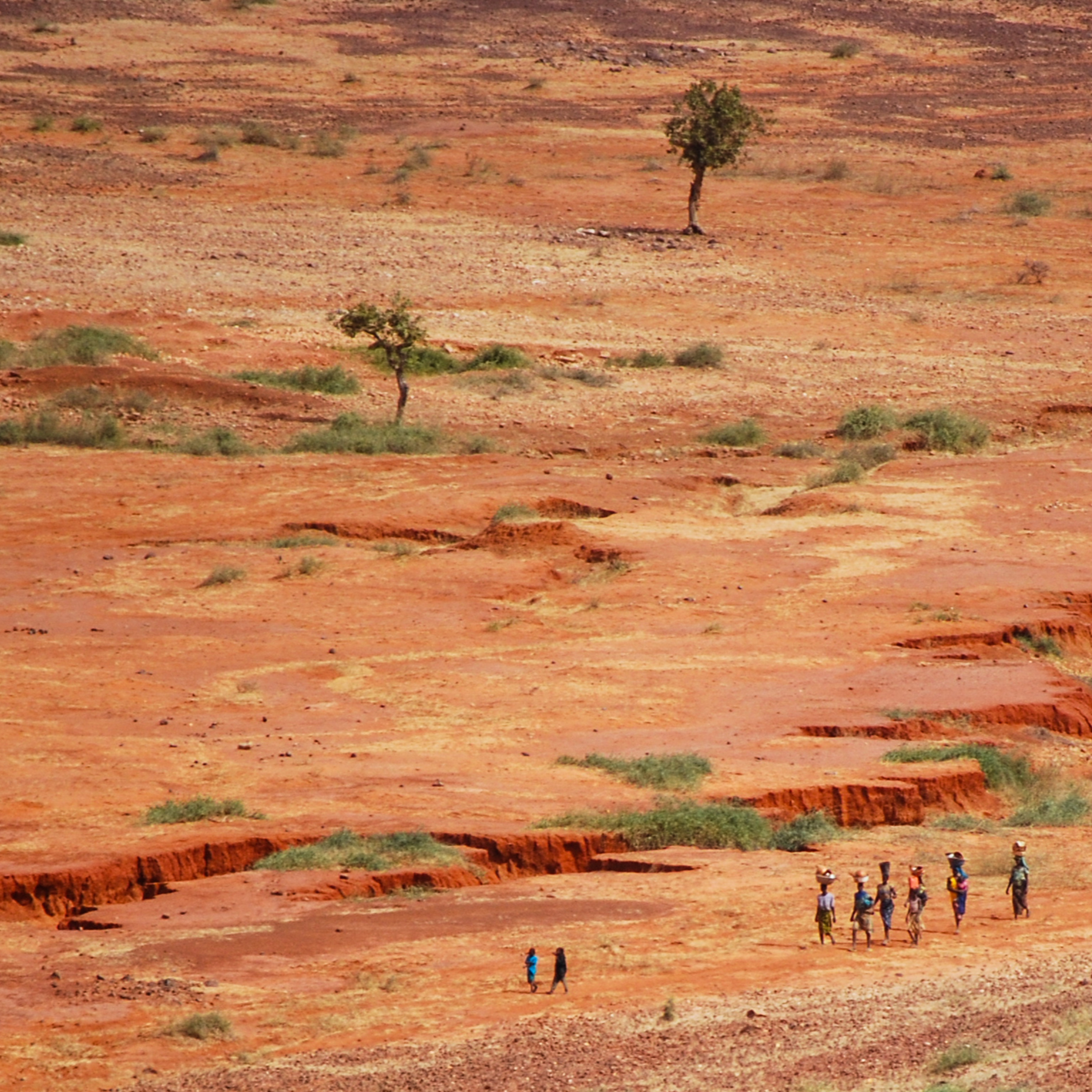
Africa Climate Conversations.Local people critical in restoration of African drylands.African drylands are home to more than half a billion people who live and work in the drylands.
“We need to rethink restoration within the dryland. The voice of the people must be part of the design, implementation, and the monitoring process,” Lalisa Duguma, a scientist with the World Agroforestry, told the Africa Climate conversations. “Restoring drylands is not a walk in the park. It needs a very strong commitments, skillsets, understanding the social-cultural complexity existing in those location.”
Listen to the series trailer here
Who defines what is degraded? As you listen to today...
2021-05-1843 min
Africa Climate Conversations.Energy Shift: How can Africa ensure a just transition?Today on the Financing change in Africa series we are asking ourselves how Africa can balance between its development plans and emission reduction, given that over 600 million people in Africa do not have access to electricity.
In 2019, the United Nations University Institute for Natural Resources (UNU-INRA) report on Africa’s stranded assets warned that Africa must forego burning 90percent of known coal reserves, 34percent of gas, and 26percent of oil. So, the question is, how can Africa avoid stranded assets, stranded workers, and stranded communities as the continent implements the Paris agreement and develop?
But co...
2021-05-1331 min
Africa Climate Conversations.Restoration of the African Drylands Series TrailerThe Global Landscapes Forum (GLF) Africa Conference Digital 2021 conference will be happening on the 2nd and 3rd of June this year. It is the first-ever digital conference focused entirely on Africa's drylands and how integrative restoration practices can see them flourish once again. The meeting takes place when the world is still finding means to cope with the global pandemic, already impacting restoration.
The series will tell you why the African drylands home to half a million people and over two million globally are critical. It will also explore solutions such as the African Forest Landscape Restoration...
2021-05-1111 min
Africa Climate Conversations.Energy access: why women are catalysts for change.Climate change impacts men and women differently. When the COVID-19 pandemic has led to income losses increasing the poverty burden in many countries, Sheila Oparaocha, the ENERGIA International Coordinator and Programme manager tell us why access to energy is critical for women to achieve the SDG goals. Anne Kuriakose, a senior social development specialist at the climate investment funds, explains the Climate Investment Funds (CIF) pursuing gender equality goals in its work supporting climate-resilient, low-carbon development investments on the continent?
2021-05-0637 min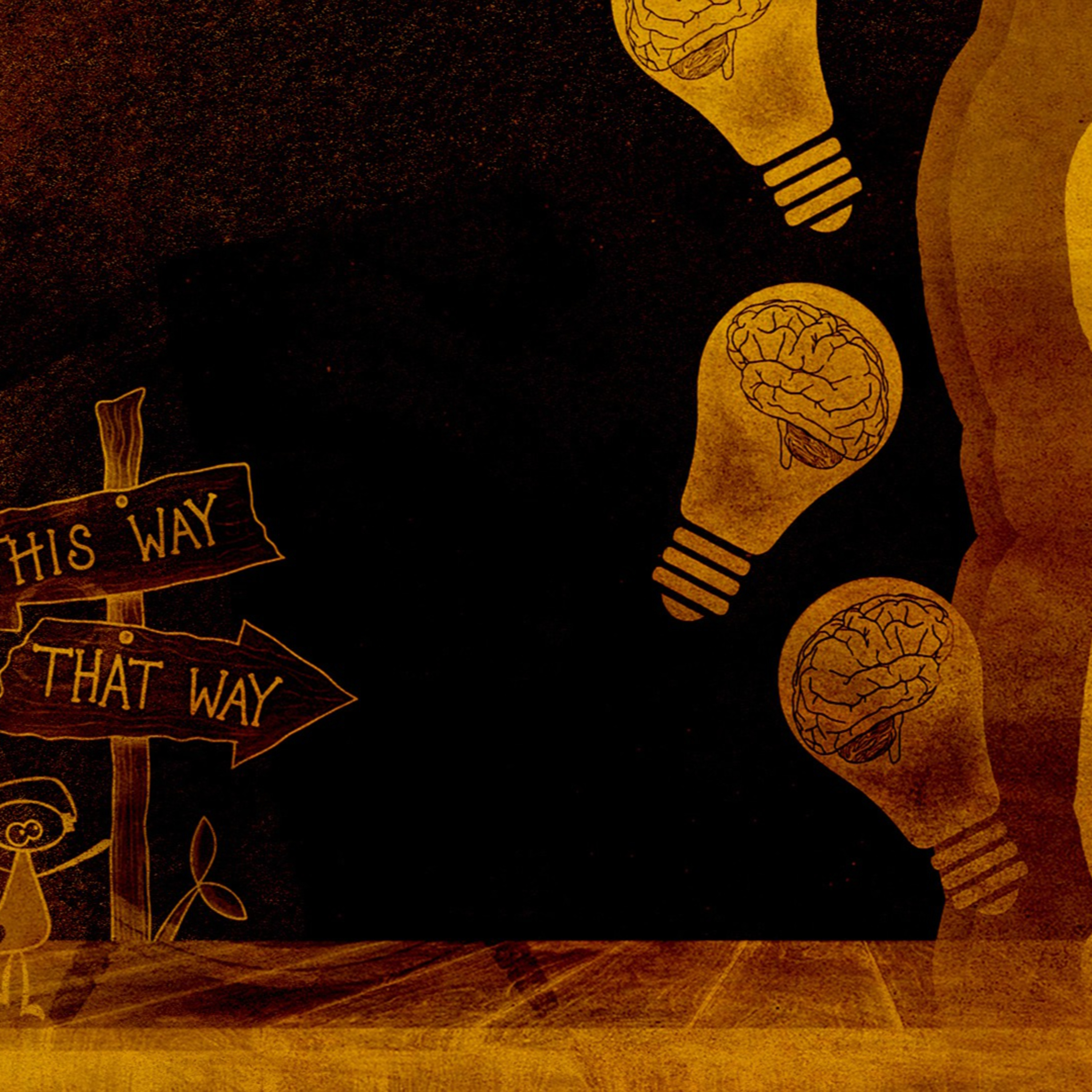
Africa Climate Conversations.It's a wrap for the climate change impacts on mental health series.Mental health is not often directly linked to climate change.
But let's be honest, temperatures are rising, floods, droughts, heatwaves, bush fires, rising sea levels are getting real and affecting real people. Their livelihoods and day-to-day quality of life is adversely affected. Not to mention the Covid-19 pandemics and high cost of living which adds on to the economy and mental effects.
In Kenya, last year, the Kenya National Mental Health Task Force recommended to the government to declare mental health an emergency in Kenya. The task force report identified climate change and its effects...
2021-05-0433 min
Africa Climate Conversations.Restoring Critical African forestsAfrica forest cover accounts for 23 percent of its planned area. Africa is also home to the most significant proportion of forest-dependent subsistence households globally. More than half of the continent's population relies directly or indirectly on the forests for livelihoods.
Ines Angulo, the Forest Investment Project (FIP) coordinator at the Climate Investment Funds (CIF), says Africa is the continent with the highest annual rate of net forest loss at 3.9M hectares in the last decade. The forest loss has been increasing steadily since 1990. How is the FIP project working with African countries to manage forest loss and p...
2021-04-2938 min
Africa Climate Conversations.Building resilience in AfricaAfrica accounts for total funding of 300 million USD of the The Pilot Program for Climate Resilience. The pilot project for climate resilience is a USD1.2 billion adaptation funding window of the climate investment funds under the Strategic Climate Fund.
Lorie Rufo, the project coordinator of the, says the adaption funds worked with Mozambique, Niger, and Zambia, among other countries, to build community resilience. The fund has also supported Ethiopia, the Gambia, Madagascar, Malawi, and Uganda to prepared their climate-resilient investment plans. What are the results?
Mozambique is Africa's second most threatened country by climate change aft...
2021-04-2238 min
Africa Climate Conversations.Conservation research, not a priority for Kenyans says, Senior WardenLocated in the Rift Valley, Lake Bogoria National Reserve is a stunning place. It is adorned by a pink cloud of flamingos and geysers bubbling with the most spectacular hot water volcanic springs. But unfortunately, James Kimaru, the Lake Bogoria National Reserve Senior warden, told the Africa Climate Conversations that the lake has increased by more than 10 kilometres, and 90 percent of these hot springs are underwater.
“With the rising temperatures resulting to enhanced rains the alkaline Lake Bogoria, fresh water lakes Baringo and Lake 94 might merge resulting to a massive biodiversity loss as a result. Kenyan’s lack...
2021-04-2036 min
Africa Climate Conversations.Geothermal Energy: a high risk but worthy investmentToday we are talking about the Scaling Up Renewable Energy Program in Low-Income Countries (SREP) funded by the Strategic Climate Fund. the Strategic Climate Fund is one of the two Climate Investment Funds (CIF). The funds are channelled through five multilateral development banks. SREP has been financing the scaled-up deployment of renewable energy solutions aimed at increasing energy access and economic opportunities.
Covid-19 has impacted energy consumption in Kenya. Paul Ngugi, the Geothermal Development Company regional manager, says with almost 2800 MW installed capacity available to the consumers, a peak demand of nearly 2000 MW. With many power plants...
2021-04-1543 min
Africa Climate Conversations.Climate-related loss and damage: Who pays?In Kenya’s Baringo County 22 schools have either been wholly submerged or destroyed following the swelling of Lakes Baringo, Bogoria, and lake 94. Jacob Chepkwony, the Baringo County deputy governor, says the county requires nearly 550 million shillings that is nearly a 4.5million US dollar for the education sector to recover.
Chepkwony says the administration challenge now is balancing resettling the displaced and achieving the development goals the administration has set to achieve. But for a continent responsible for about four percent of the global emissions, and heavily susceptible to rising temperatures, who pays for these disasters in the fu...
2021-04-1324 min
Africa Climate Conversations.Giant Solar plant lighting up Morocco from the desertToday for the Financing change in Africa series, we feature the $5.4 billion Clean Technology Fund (CTF). One of two multi-donor trust funds under the Climate Investment Funds (CIF) Danny Morris, the clean energy lead coordinator for the CTF tell us all about the CTF, what is the fund has achieved in Africa and future.
We also talk to Fatima Hamdouch, the Director of Strategic Steering Moroccan Agency for Solar Energy (MASEN) on what us what has led to the success of the largest solar plant globally, lighting up Morocco.
2021-04-0844 min
Africa Climate Conversations.Displaced and forgotten: Kenya's Rift Valley lake's floods a year later.Have the persons displaced by the 2020 flooding Kenya's Rift Valley Lakes been forgotten? As Kenya rolls out a Covid-19 vaccination drive amid the country struggling with the third wave, communities displaced by the flooding of Lake Baringo, Lake Bogoria, and Lake 94 among the swelling Rift Valley Lakes spend a sleepless night. Nearly a year on and with long rains starting, parents staying in tents worry of respiratory illnesses outbreaks. Not to mention the wildlife attacks and uncertainty of the expected enhanced rainfall as the water keeps rising. Have they been forgotten a year later?
2021-04-0522 min
Africa Climate Conversations.Financing Change in Africa: Where are we?The Climate Investment Funds (CIF), a multilateral climate finance mechanism, has been working with the continent's premier financial development institution, the African Development Bank (AfDB) - CIF's implementing entity - renewable financing energy, forestry, and resilience solutions in Africa. Of about $8billion funding, Africa receives one-third of the total funding. In today's conversation, Mafalda Duarte, the Climate Investment Funds CEO, and Gareth Phillips, the climate and environmental finance manager at the AfDB, gives a backgrounder the Climate Investment Funds and the portfolio of work CIF have implemented with the AfDB.
2021-04-0138 min
Africa Climate Conversations.Culture - a panacea to the high mental health treatment gap?Mental health problems in Kenya and Africa are often interpreted from either a religious or traditional perspective influenced by a person’s cultural perceptions. These perceptions impact not just the provision of care but also determines access. The World Health Organization (WHO) says a growing number of people with mental illness are not receiving mental health care and treatment. Estimates indicate an 85 percent ‘treatment gap’ for low and middle-income countries. But a high number of people opt to seek help from either a religious leader or a traditional healer, depending on their cultural beliefs. Can culture help bridge the treatm...
2021-03-3036 min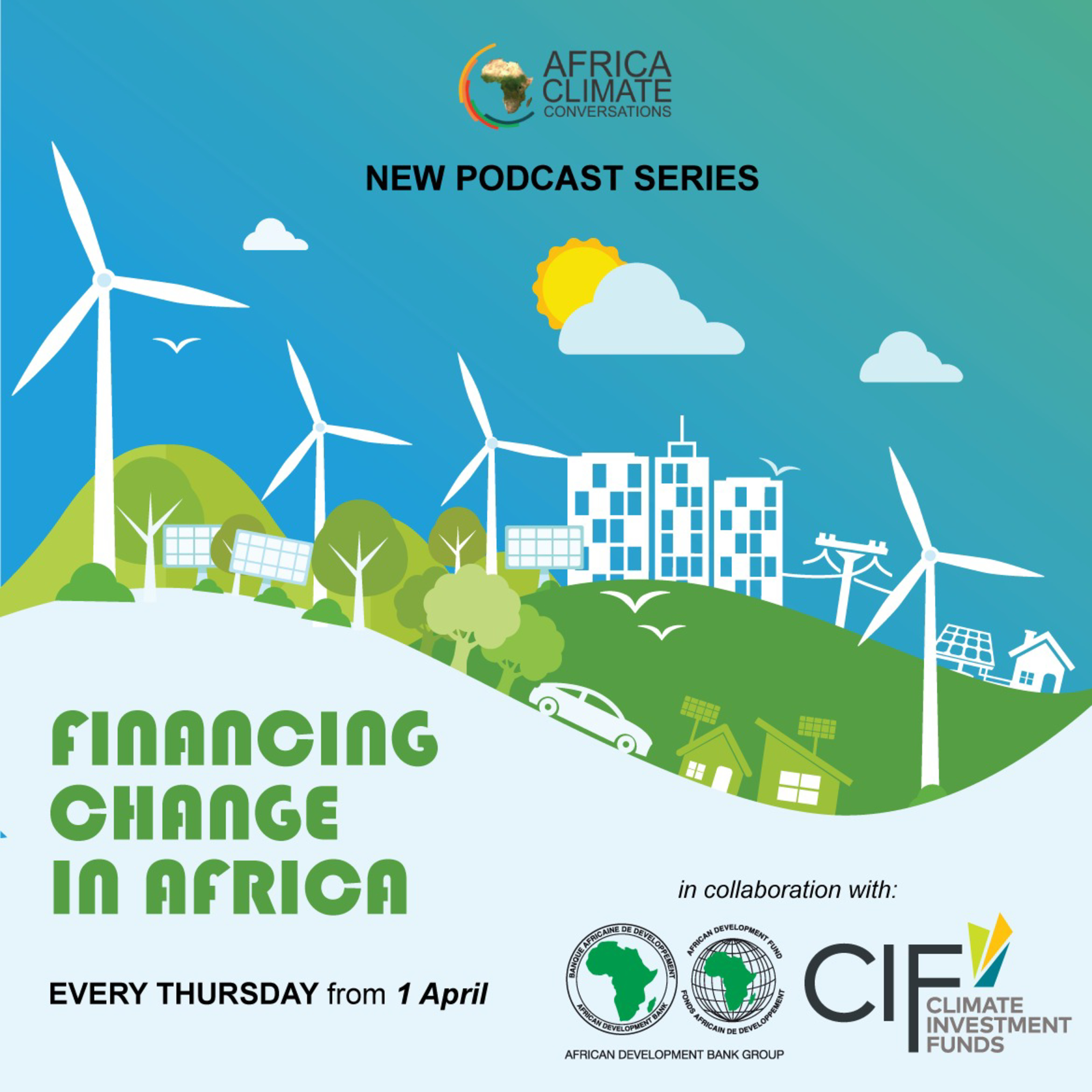
Africa Climate Conversations.Financing Change in Africa.Starting coming Thursday, 1st April 2021, the Africa Climate Conversations is collaborating with the African Development Bank and the Climate Investment Funds (CIF) for an 8-part series on Financing Change in Africa. Since 2010, the continent's premier financial development institution plays an essential role as a CIF implementing entity, advancing a growing portfolio of renewable energy, forestry, and resilience solutions in Africa.
2021-03-2504 min
Africa Climate Conversations.Mental Health: why are Kenyan youths turning to drugs?This week, we are still staying in Murang'a county. Today, we talk to Joseph Mbai County Executive Committee member in charge of Health Murang'a County. He ascertains that three people are dying every week due to substance abuse. Why? Why are the youth and young adults are making about 70 percent of the population engaging in drug and substance abuse? What are some of the county's challenges dealing with rising mental health and substance abuse cases?
Photo by Michael Longmire on Unsplash
2021-03-2235 min
Africa Climate Conversations.How does this GIS tool monitor landslides?In many countries, some landslide-prone areas are known. But often, communities seem to be caught unaware when these landslides hit.
How do you ensure policymakers pay special attention to the future landslide in their locations? Michael Ngugi, a geographic information system (GIS) expert from the Regional Centre for Mapping of Resources for Development (RCMRD) based here in Nairobi, developed a landslide monitoring tool that tells where a landslide is likely to happen. The economic losses emanating from agricultural, industrial, infrastructure losses, and human impacts, among other impacts. Capturing these details is key to ensure that policymakers monitors a...
2021-03-1531 min
Africa Climate Conversations.Wrecked by Landslide: No place to call home three years on.Today's episode features a family, victims of a landslide from Gitugi village in Mathioya, Murang'a County in central Kenya.
About three years ago, a landslide struck in the middle of the night. Taking away 39-year old mother of four, Mary Wambui, entire livelihood. Her family, still traumatised to return and settle at the affected farm, was evicted from a vocational school they have called home since the landslide. Ever since the landslide, when Red cross offered psycho-social support, her family has never encountered counselling despite contact headache, fainting, and high blood pressure Wambui, her husband, and elder...
2021-03-0819 min
Africa Climate Conversations.There is no health without Mental Health warns experts.Kilifi county in Kenya has three practicing mental health specialists against a population of about 1.4 million. Mental health is allocated less than 0.5% of the general health budget. In Kenya, out of 47 counties, only 22 have a mental health specialist.
“Understanding your mental health, gives you a better standard of life. But though Mental health is part of the general health system, very little funding is made available compared to fields like maternal and child health, reproductive issues, TB, and HIV, including funds for specialist training. Mental health is neglected right from the policy level,” says Leonard Nasoro, a ment...
2021-03-0136 min
Africa Climate Conversations.No, Mental Illness is not MadnessIn today's episode, we talk to Elias Fondo, the Kilifi County Mental Health Clinical officer, Leonard Nasoro, a mental health specialist, and a nurse at the Kilifi County Hospital. They tell us that uncertainty due to changing weather leads to anxiety and fear, dragging communities deeper into poverty. How?. In a country where one out four Kenyan's suffers a mental illness once in their lifetime, why is there too much stigma around mental illnesses? Is mental illness an "African" problem?
2021-02-2231 min
Africa Climate Conversations.Kilifi: where drought and flood devastates at the same timeThis week's episode takes you to Kilifi, Kenya - home to Watamu and Malindi's sandy beaches. The only permanent river - River Sabaki - emanating from Kenya's Aberdare Ranges west of Central Kenya floods each time it heavily rains upstream. Now, the 2018 Kilifi County Drought contingency plan notes that the drought return period has reduced to two to three years from every five to seven years in the last decade. Between 2016 to 2020, Kilifi County experienced a devastating drought that leads to massive pasture loss and cattle deaths, with nearly half a million people affected. With the county alternating between...
2021-02-1725 min
Africa Climate Conversations.How is the changing climate affecting mental health?In Kenya, one out of every four Kenyans suffer a mental illness in their lifetime. Natural disasters like flooding are becoming prevalent, and, in some counties, communities are struggling with disasters interchanging between flooding and drought, not giving them enough time to recover. How is the changing climate affecting mental health? Listen to Dr. Pamela Kaithuru a counselling psychologist and a meteorologist from Kenya Meteorological Department.
Image by chenspec from Pixabay
2021-02-0822 min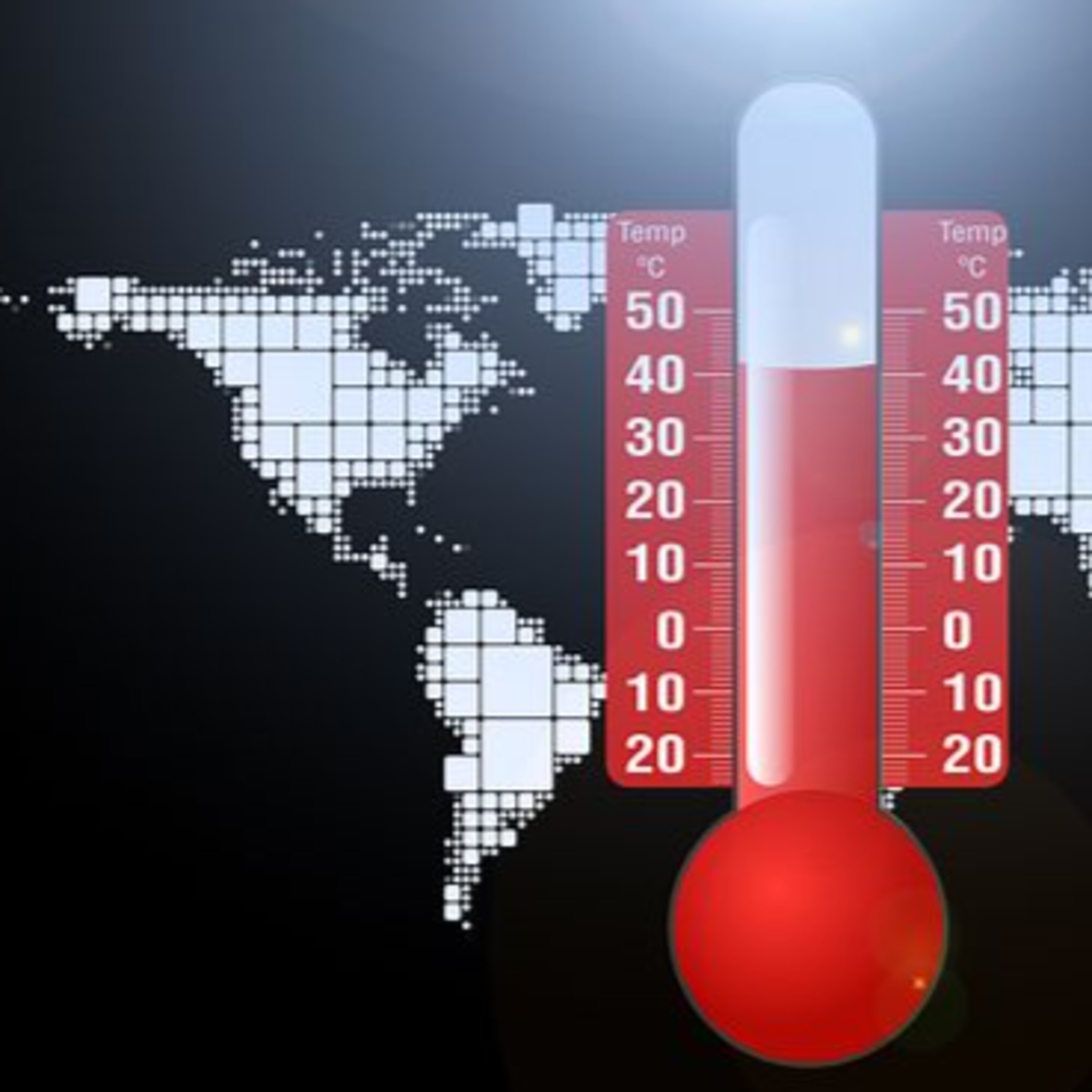
Africa Climate Conversations.A hot East Africa: But how hot?The World Meteorological Organization (WMO) reports indicate 2020 was one of the three warmest years on record after 2019 and 2016. In today's episode, Dr. Abubakar Salih Babikier, a climate scientist from IGAD Climate Prediction and Application Center (ICPAC), tells us that since tropical storm Sagar flooded most of Somaliland in 2018, at least a tropical cyclone has hit Somalia once or twice a year.
How hot are the other parts of the Horn of Africa? What are the impacts?
2021-02-0122 min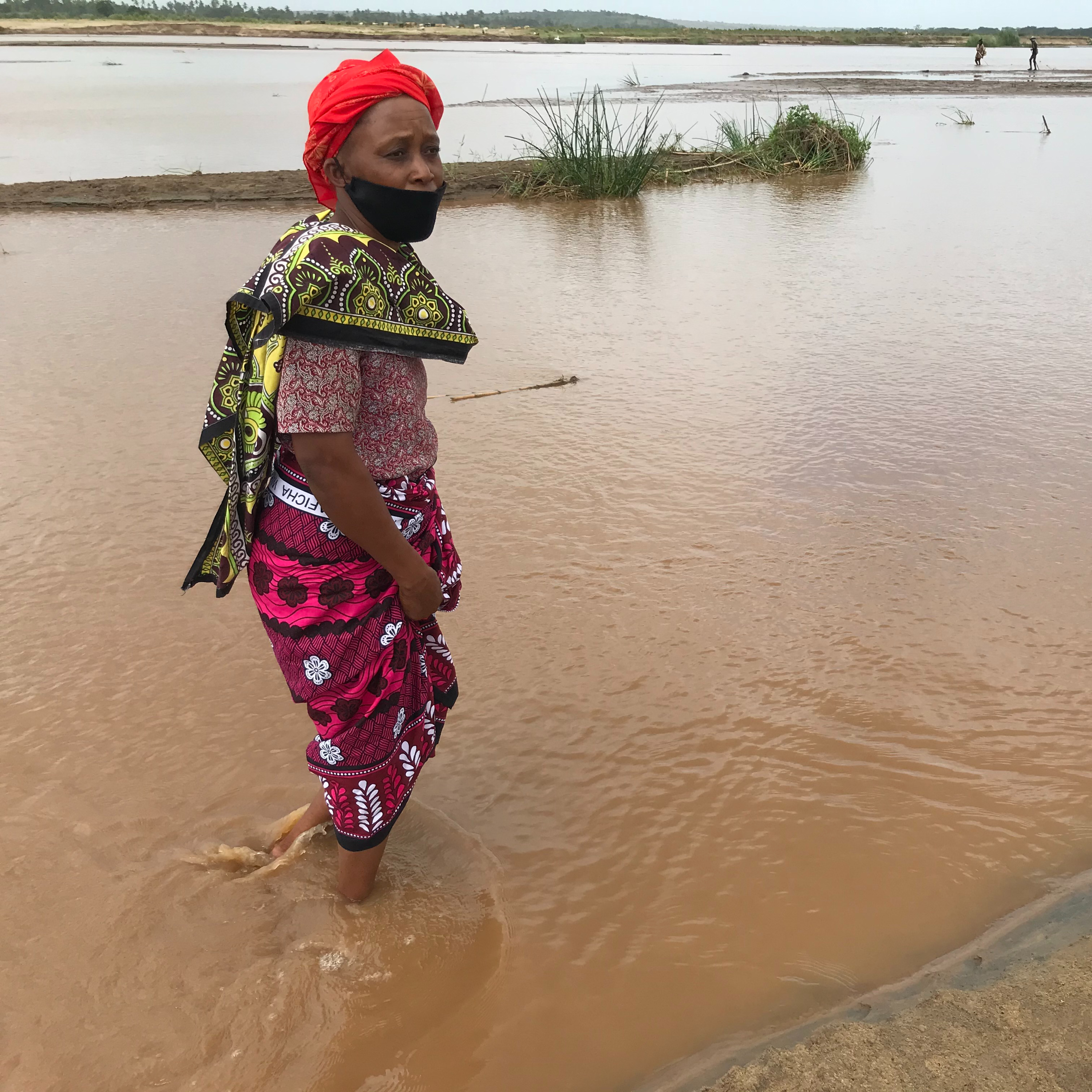
Africa Climate Conversations.Trailer: Climate Change impacts on Mental Health.The World Meteorological Organization (WMO) has said that 2011-2020 was the warmest decade on record, in a persistent long-term climate change trend. 2016, 2019, and 2020 are recorded as the top three warmest years on record. The series explores how the rising global temperature, flooding, increased landslides, rising sea levels, warming oceans, and droughts impacting communities mentally.
2021-01-2506 min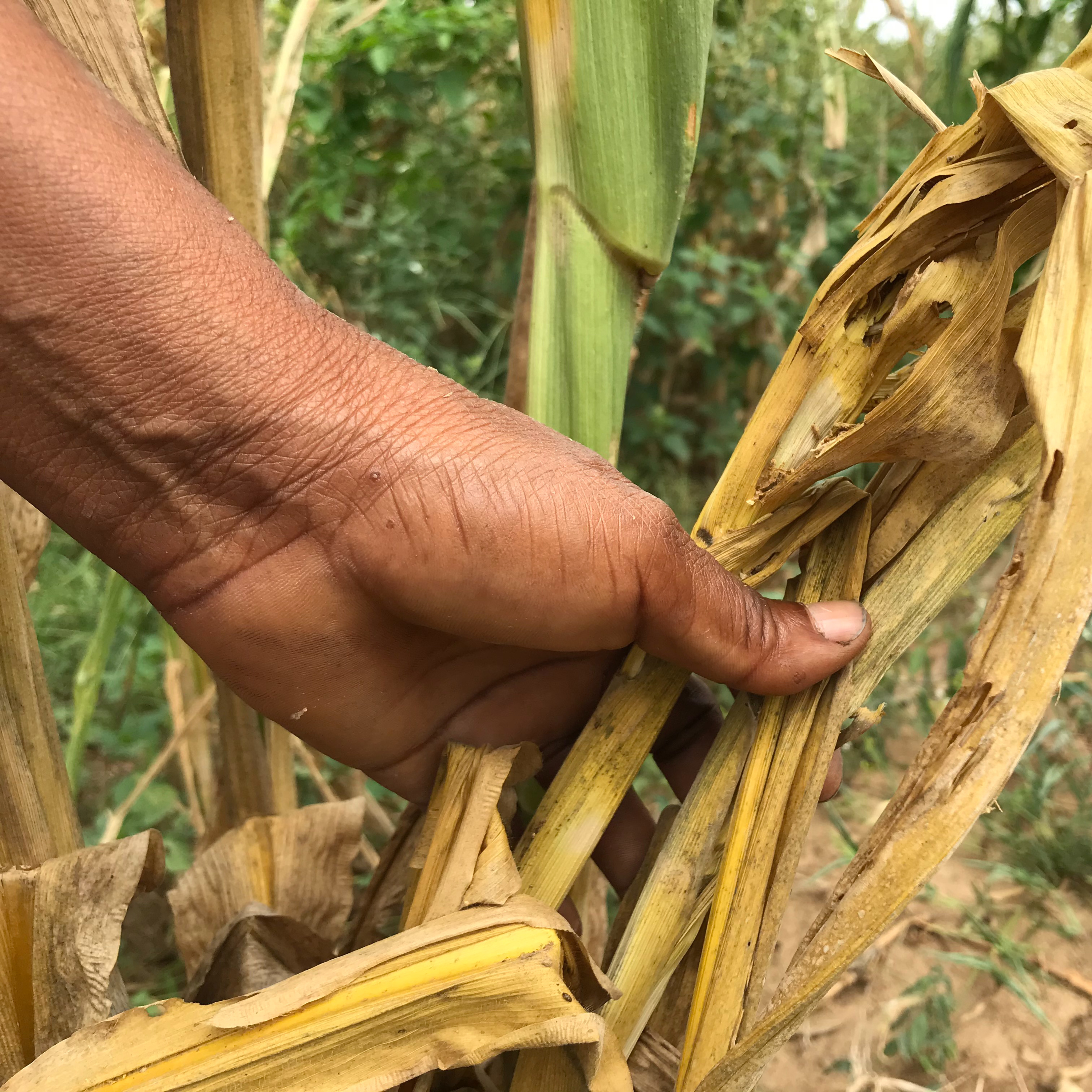
Africa Climate Conversations.Season Reflections.We started the podcast journey last year in June 2020. What are some of the issues we have talked about and where are the plans for 2021?
2021-01-1820 min
Africa Climate Conversations.Tips to compost kitchen waste in the balcony without a smellIt is a festive season, though with a difference this time due to COVID19. I do not know how you celebrate during festivals, the many African cultures, and honestly, beyond Africa, food is essential.
But food wasted and dumped in landfills is heat up by the sun. Over time, it emits greenhouse gases that warm up the planet we live in. As a result, contributing to droughts, floods, landslides, warming of the sea becoming frequent and severe.
Today, Maite Guardiola, the co-director of Dudu Dunia, June Kimaiyo, and Catherine Cherop from Dudu Dunia - a...
2020-12-1422 min
Africa Climate Conversations.How Much Kitchen waste does your household generate?It's December, and the holiday season is here. Unfortunately, this year's festive season occurs amid a global crisis that keeps us from coming together with our large extended families. But we will still eat and hence generate a lot of household waste, especially from our kitchens.
Dudu Dunia, a Kenyan based organisation specialising in composting kitchen waste says 60 percent of Nairobi waste could be transformed into rich fertiliser. But how does this waste we generate and dump on landfills end up hurting our environment and the planet we live on? How can we reduce our kitchen waste?
2020-12-0817 min
Africa Climate Conversations.Access to Weather alerts saves fishers from Killer Lake Victoria stormsVictoria is the largest lake in Africa and is the primary source of the Nile. Deadly intense thunderstorms build up on the lake at night as fishermen go fishing. The International Red Cross estimates that between 3,000 and 5,000 fishermen per year lose their lives in Lake Victoria's violent storms. How does availing weather information to fishers on how the lake weather will look the following day help protect the fishermen's lives.
2020-12-0137 min
Africa Climate Conversations.Why is the circular economy the answer to building back better past Covid19 and the climate change crisis?How can Africa and the world economies build better given the tremendous impacts Covid 19 has had on economies? And not to forget the climate change emergency crisis that UNEP 2019 emission gaps tell us we are already on 3 degrees warmer world pathway.
I talked to Davinah Milenge Uwella, the principal program coordinator of the climate change and green growth department at the African development bank, on how adopting a circular economy can help reduce global emissions and grow sustainably.
2020-11-2334 min
Africa Climate Conversations.Is Africa Investing enough in understanding its climate impacts for development?On today's podcast, James Kinyangi, the coordinator for the climate and development special funds for Africa at the African development bank and Mohamad Bamba Sylla, a lead author at the intergovernmental panel on climate change – IPCC - and currently the research chair in climate change science at the African Institute for mathematical sciences Rwanda tacks us through the status of the investment in climate change information and how this is impacting the continents future developments plans.
2020-11-1638 min
Africa Climate Conversations.COP26: the road to Glasgow, priorities for AfricaEvery year, world leaders meet under the United Nations Framework Convention on Climate Change (UNFCCC) for the annual Conference of the Parties (COP) to forge a global response to the climate emergency.
During COP 25 held in Madrid, Spain, last December, Africa did not achieve much. But as the world prepares for COP26 now scheduled for the 1st to 12th November 2021 in Glasgow, UK, Arona Soumare, the African Development Bank principle climate change and green growth officer and the spokesperson to the African Group of Negotiators on Climate Change Ambassador Seyni Nafo explains Africa's priorities.
2020-11-0943 min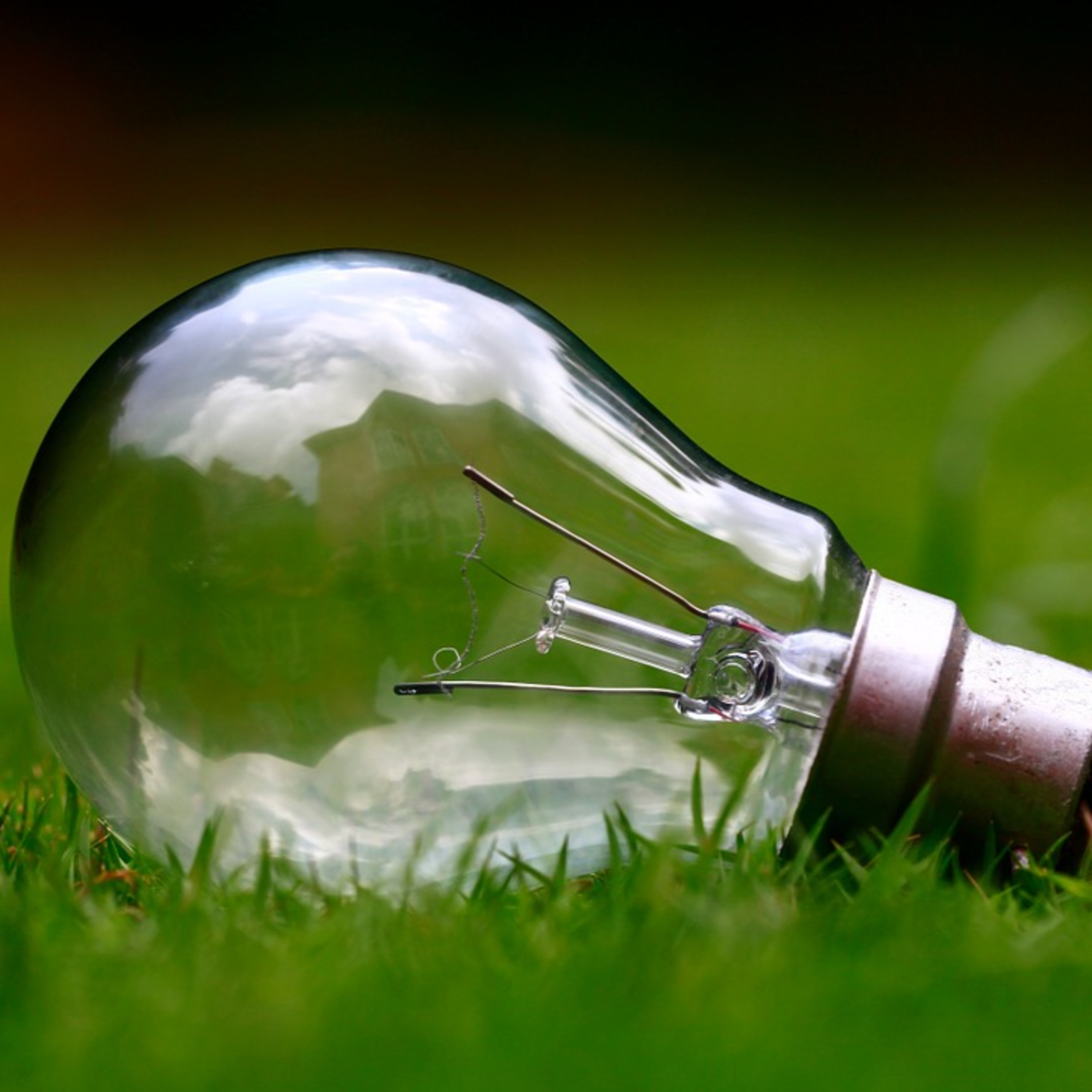
Africa Climate Conversations.Adaptation: Why it's critical for Africa.Flooding, droughts, landslides, and cyclones are becoming intense and more frequent. Adaptation offers an alternative solution in addressing these climate change impacts affecting communities, and economies, especially those with limited coping mechanisms and capacity.
In this episode, the African Development Bank Group managers Al Hamdou Dorsouma - Climate Adaptation and Green Growth and Gareth Phillips - Climate and Environment Manager, address why adaptation is critical for the continent and how the Adaptation Benefits Mechanism is addressing gaps in raising adaptation climate finance.
2020-11-0240 min
Africa Climate Conversations.Economics of Climate Change; Challenges and Opportunities.Africa is growing. The continent comprises 54 countries with diverse ecosystems - from deserts, coastal environments, mountain environments, savanna grasslands, and forests. Combined, Africa emits about four percent of all global emissions but has seen adverse impacts of climate change.
Anthony Nyong, the Climate Change and Green Growth Director at the African Development Bank, says the continent deserves the space to grow. Part of that growth will require some levels of emissions being generated. But, what opportunities for investments exists?
2020-10-2750 min
Africa Climate Conversations.Green Economy Series TrailerIn recent years many African countries have experienced severe climate-related crises. The continent is already battling the increasing climate-related risks to health, livelihoods, food security, water supply, human security, and economic growth. But amid all the climate-related challenges, Africa has to grow. But what opportunities does the green economy bring that African governments, financial institutions, private sector, the civil society, international organisations can invest in to ensure Africa grows in a more efficient, sustainable and resilient manner?
This series will explore, why green economy, financing it, the road to Glasgow, a just climate transition, and adaptation among o...
2020-10-2006 min
Africa Climate Conversations.Kenya, to succeed in Blue Economy, invest in research and local communities advices scientistKenya’s marine and coastal fisheries sector supports an estimated two million people directly and indirectly. From fishers, processors, traders, input suppliers, merchants of fishing accessories, and providers of related services.
Dr Melchizedek Osore a research scientist at the Kenya Marine and fisheries research institute says despite the important role in income generation, food security, and the projected benefits under the blue economy, the Indian Ocean is now well researched as compared to the pacific.
Dr Osore told Africa Climate Conversations that Kenya has not invested in the oceans in away that beneficial to the econ...
2020-10-1324 min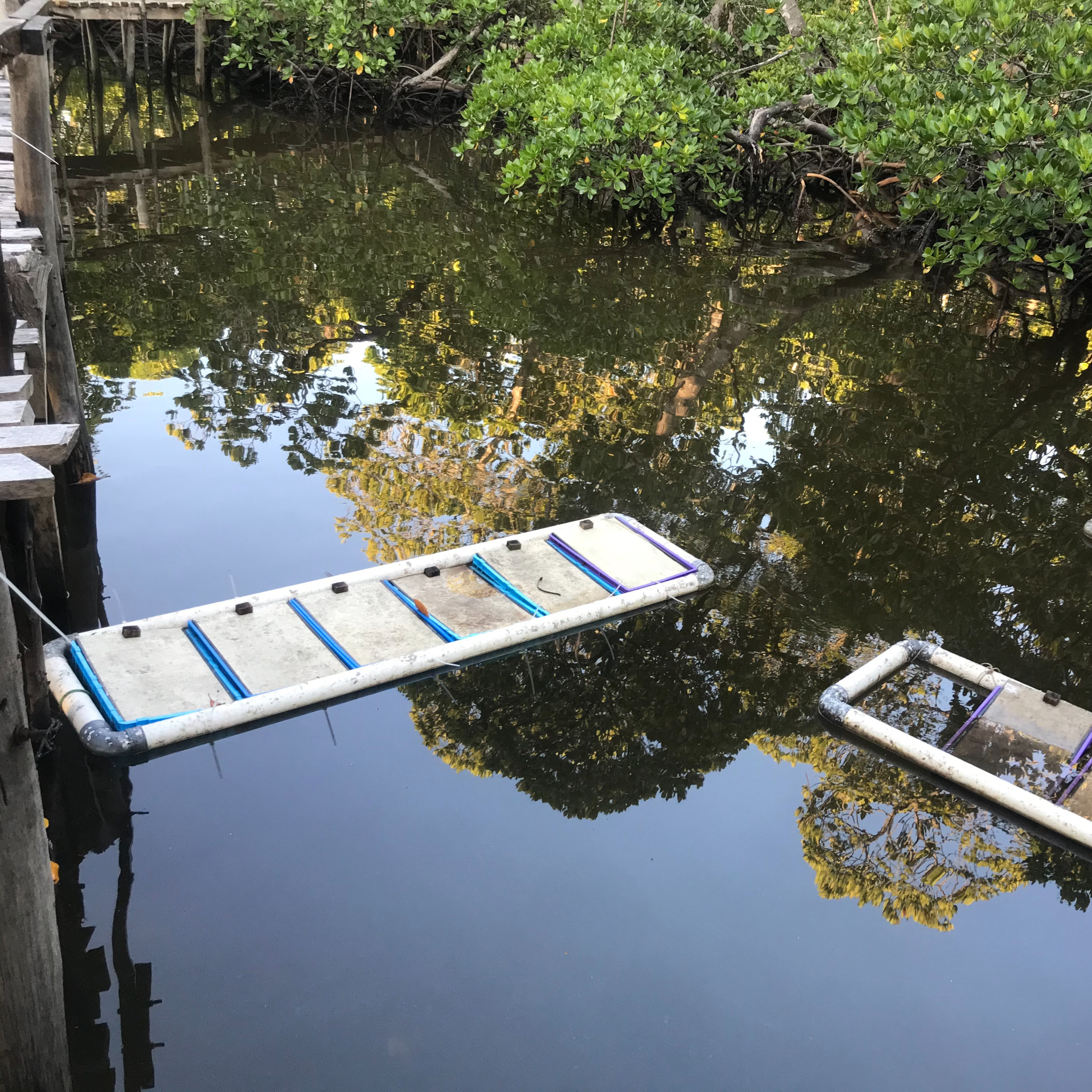
Africa Climate Conversations.Kenyan coastal community fattens crabs to save mangroves.Nearly 20 years ago, a group of youths at Dabaso village located at the Mida Creek in Watamu - a small coastal town in Kenya, north of Mombasa, were concerned that mangrove forests along the creeks were getting destroyed at an alarming rate. Communities used poison to catch fish and mosquito nets.
They embarked on a journey to save the forest and fight the illegal fishing methods. But experts advised them that their efforts would not be sustainable if the locals did not have an alternative livelihood source. They started fattening crabs, which they sold to hotels, educating l...
2020-10-0527 min
Africa Climate Conversations.Kenyan coastal youths replanting mangroves invites back village delicacyIn the 90’s the shoreline at Majaoni village along Mtwapa Creek in Mombasa county was destroyed as communities grew and demand for building materials rose. As a result, the crabs, shrimps, fish disappeared from this shoreline.
Furry Ambari the COMENSUM - community Environment Sustainable Mari culture and friends came together to plant these forests afresh and educate their communities on why they need to protect these forests. For the last seven years, they have managed to replant six of the 18 acres of mangrove forests. Ambari says their efforts are now paying up as crabs and gastropods are re...
2020-09-2931 min
Africa Climate Conversations.Kenyan University producing enough solar energy for use, and selling surplus to the National utility.Kenya has a remarkable potential in solar energy, but only 1percent (52MW) of the country’s energy mix has been explored. In 2014, to tap on the high potential, Professor Izael Pereira da Silva the Deputy Vice-Chancellor, Research and innovation, advised the Strathmore university located about five kilometres away from the Nairobi city centre to install a 600megawatts solar project to cut down on escalating power bills.
Professor Da Silva says today the university generates around 90 000 units monthly during summer and about 55 000 units during winter. About 30 percent of the production is sold to the national utility Kenya Power and...
2020-09-2219 min
Africa Climate Conversations.Indigenous knowledge: authentic, sustainable, and the futureAccording to Prof Muthoni Masinde, a Kenyan born computer scientist, who created a mobile app, Information Technology, and Indigenous Knowledge (ITIKI), alerting farmers on drought via SMS, indigenous knowledge is sustainable, and the future.
Indigenous knowledge is that frog clocking near a farmer's house, that tree flowering on the compound and the farmer's cow running joyfully while on its way back from the river. Professor Muthoni Masinde says we have lost close to 50percent of that knowledge.
"For a number of years, the climate scientists overlooked that knowledge, but they have discovered it was a...
2020-09-1528 min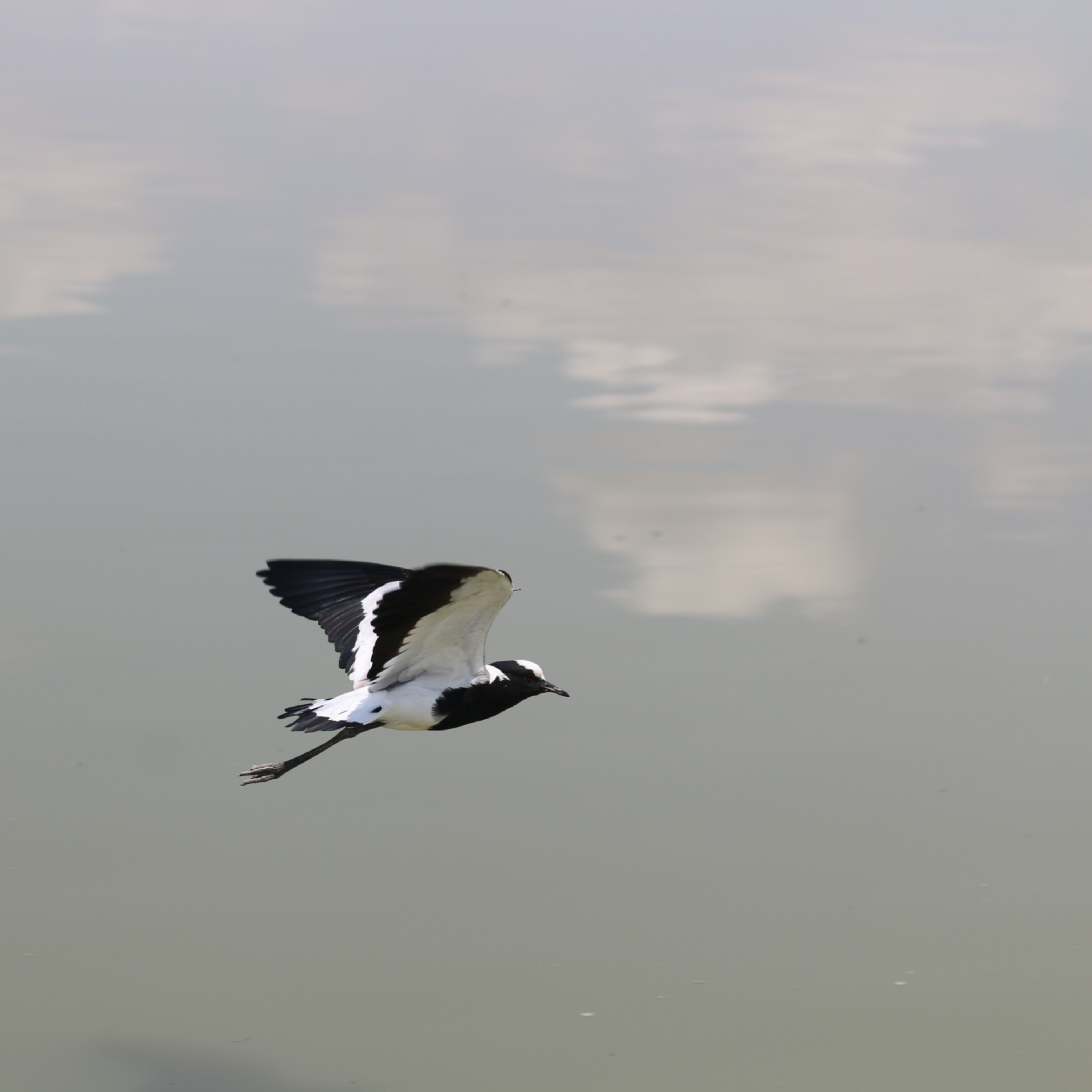
Africa Climate Conversations.Where bird's chirp tells of good, rich or bad farming season.Change of weather is not a new phenomenon. From the time in memorial, communities understood how the weather patterns changed. They observed behaviours in plants, insects, birds, people, the astronomic, and cultural beliefs that said it was time to plant. A birds chirping sound or a down dance warned farmers to till the land. They warned of too much or little rains that would be late, or early. But over the years, climate change effects like floods and droughts have become unpredictable and frequent. Environmental degradation due to human activities has also interfered with the natural environment hence threatening...
2020-09-0831 min
Africa Climate Conversations.A Kenyan solar-powered bicycle reducing transport emissionsThe transport sector accounts for at least 22percent of all global related carbon dioxide emissions according to the International Council on Clean Transportation. In Africa, it accounts for 40 percent of these emissions. Can solar powered three wheeler bicycles help reduce emissions?
2020-09-0119 min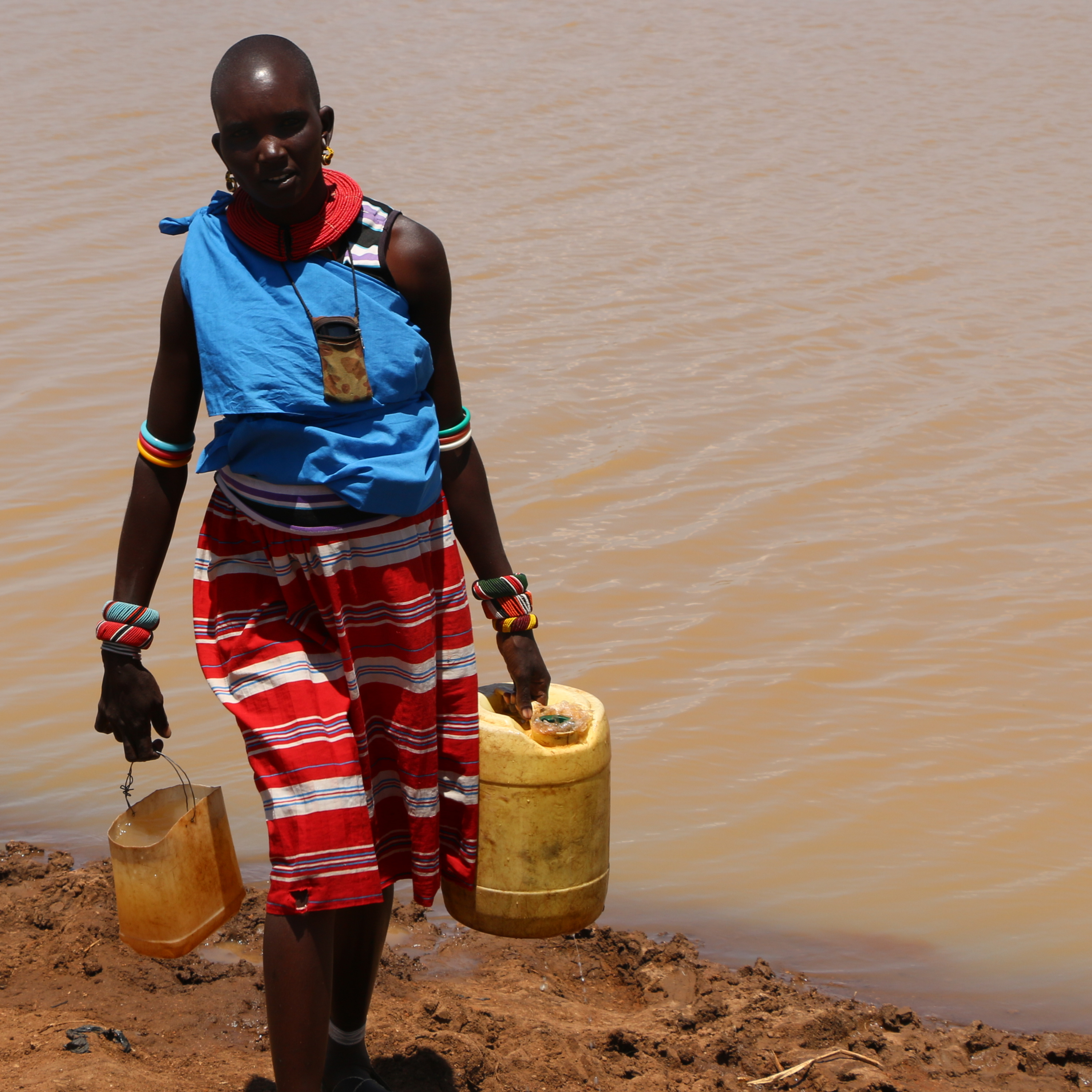
Africa Climate Conversations.Community protected natural spring reducing human wildlife conflictMost of Maasai Mara landscape is arid and semi-arid. As people, their livestock and the wild animals share the same water resources, human-wildlife conflict is inevitable. To solve this problem, a community has conserved natural springs, piping some water to the villages while leaving some for the wild animals.
2020-08-2428 min
Africa Climate Conversations.Community Driven Climate SolutionsFrom time immemorial, human beings have always adapted to the changing environment. The solution series will take you into villages where communities will echo the solutions they have found to the changing weather patterns.
2020-08-1806 min
Africa Climate Conversations.How much of your taxes should go into funding research?Research is critical for development. The Africa Union has set a target of one percent of GDP to be invested in research by African countries. But there is a massive gap in funding research in Africa. Listen to Dr. Omumbo, a senior program manager at the African academy of sciences managing the post-doctoral program, a fellowship program of post-doctoral researchers across Africa.
2020-08-0421 min
Africa Climate Conversations.Is Africa investing Enough in Research?The African Union has set a target of 1 percent of GDP to be invested in research and development by African countries. But data from the UNESCO Institute for Statistics show that only South Africa, Kenya, and Senegal are close to this target, investing around 0.8 percent of their GDP. Countries like Nigeria - Africa's largest economy currently spend 0.1 percent of the GDP compared to countries like Singapore, contributing 2.1 percent of the GDP. In this week's edition of the Africa Climate Conversation, Dr. Judy Omumbo, a senior Programs Manager at the African Academy of Sciences, explains why research is essential and...
2020-07-2824 min
Africa Climate Conversations.Africa: Why invest in Science Journalism now?What is science Journalism all about? Is it essential given this Covid19 and climate change times? In this week’s edition of the Africa climate Conversation, Leonie Joubert, a South African science journalist from cape town, also explains why it is critical that African institutions fund journalism.
2020-07-2129 min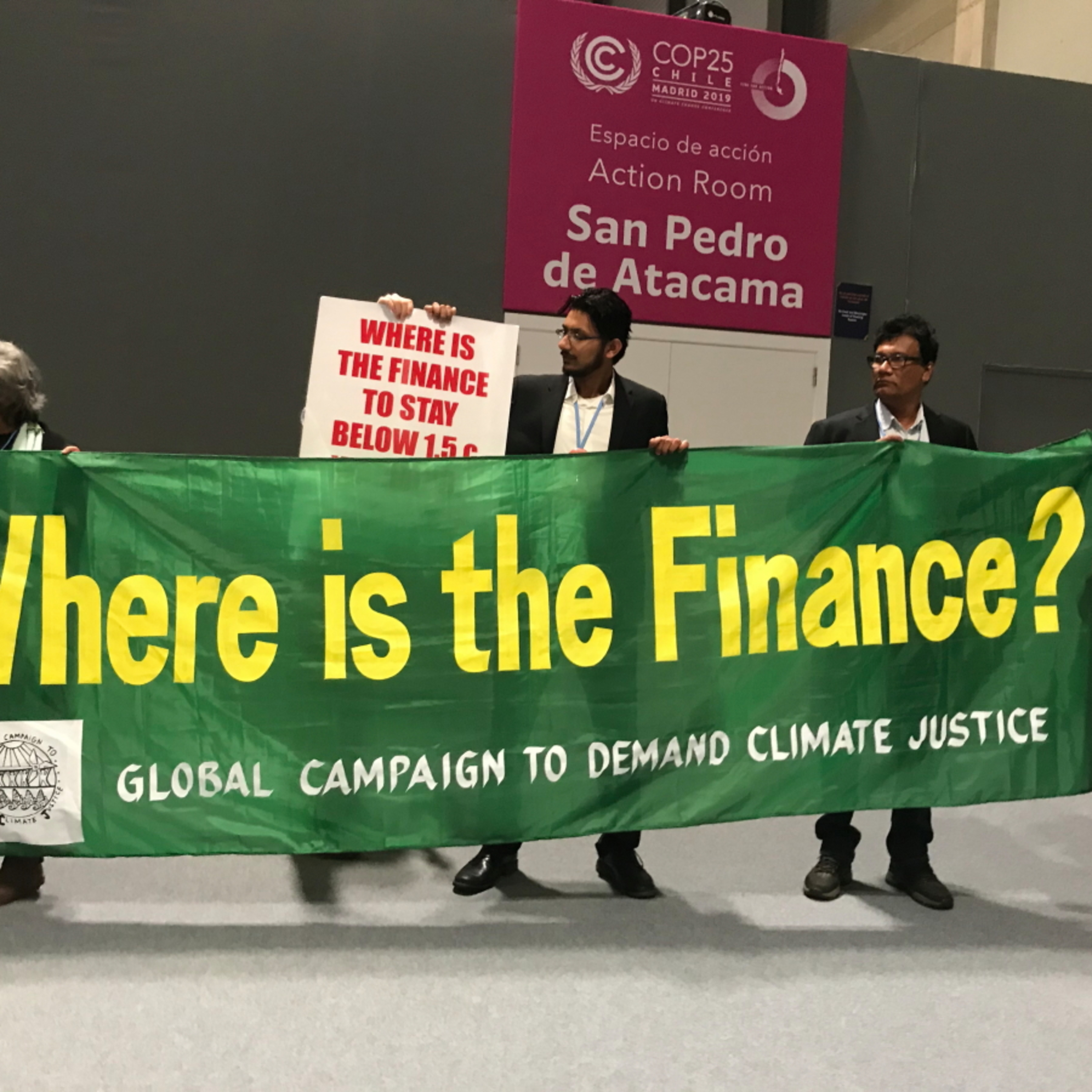
Africa Climate Conversations.Why is the cost of Finance so high in Africa?Dealing with Covid19 has proved, if there is a will, there is a way to provide more finance to deal with global issues. But since 2009 in Copenhagen when developed countries pledged to mobilize jointly $100 billion a year in climate finance by 2020 for developing countries to there has existed a push and pull on accounting if the funds have been provided or not.
In this week’s episode the former Africa Group of Negotiators (AGN) on Climate Change Chair, Ambassador Mohamed Nasr answers where we are as far as mobilizing the $100 billion, and why is the cost of fi...
2020-07-1328 min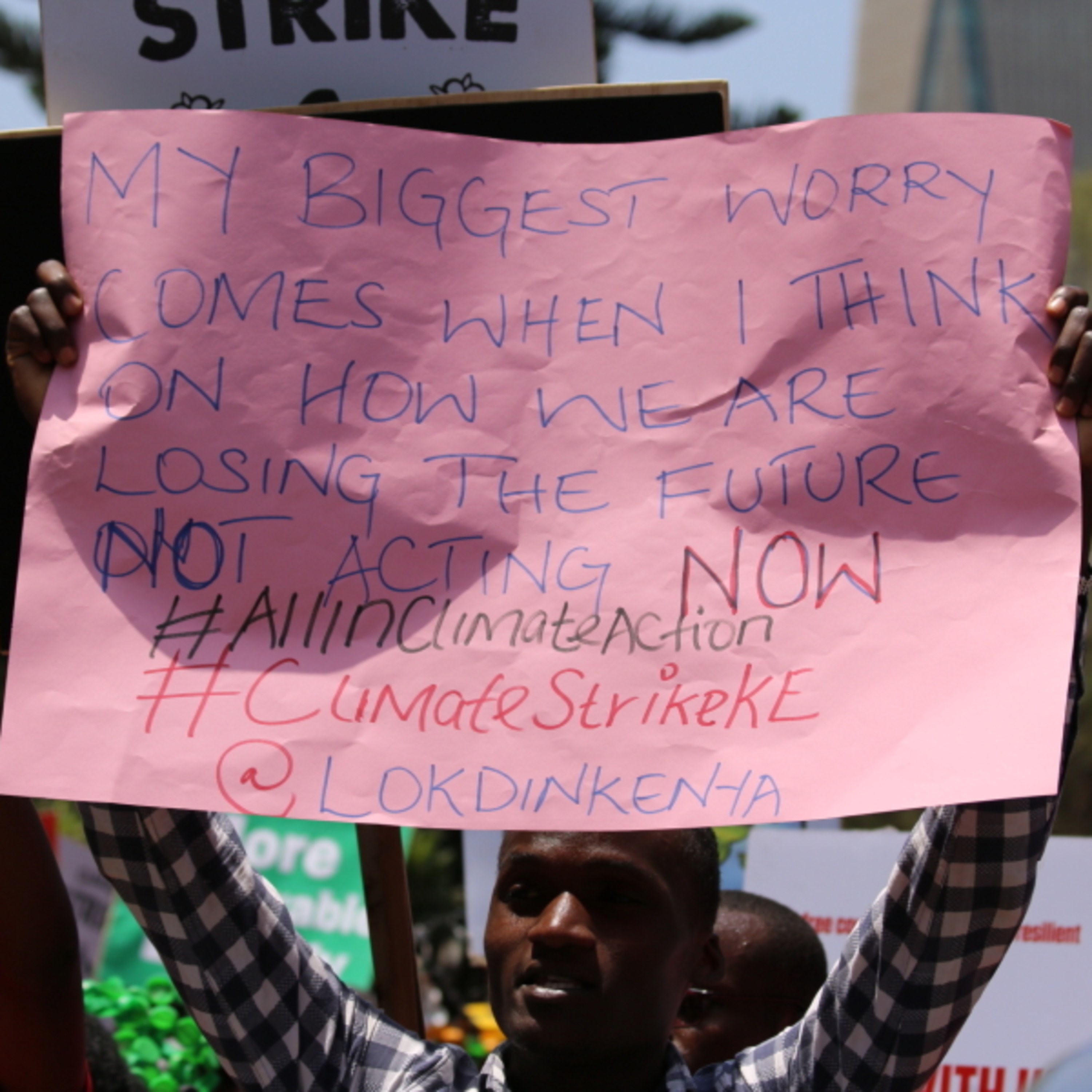
Africa Climate Conversations.Does COP26 Cancellation slow down the climate action momentum?In April 2020, due to the coronavirus pandemic, the UN postponed to 2021 a critical climate summit known as Cop26. It was scheduled to take place in Glasgow UK from 9-20 November. Additionally, the preparatory session of talks that happens at the UN Climate Change’s headquarters in Bonn, Germany, every June, first postponed to October, was also postponed to a later date in 2021. This week's edition of the Africa Climate Conversation, the former chair of the Africa Group of Negotiators on Climate Change Ambassador Mohamed Nasr explains what this means for global climate action.
2020-07-0728 min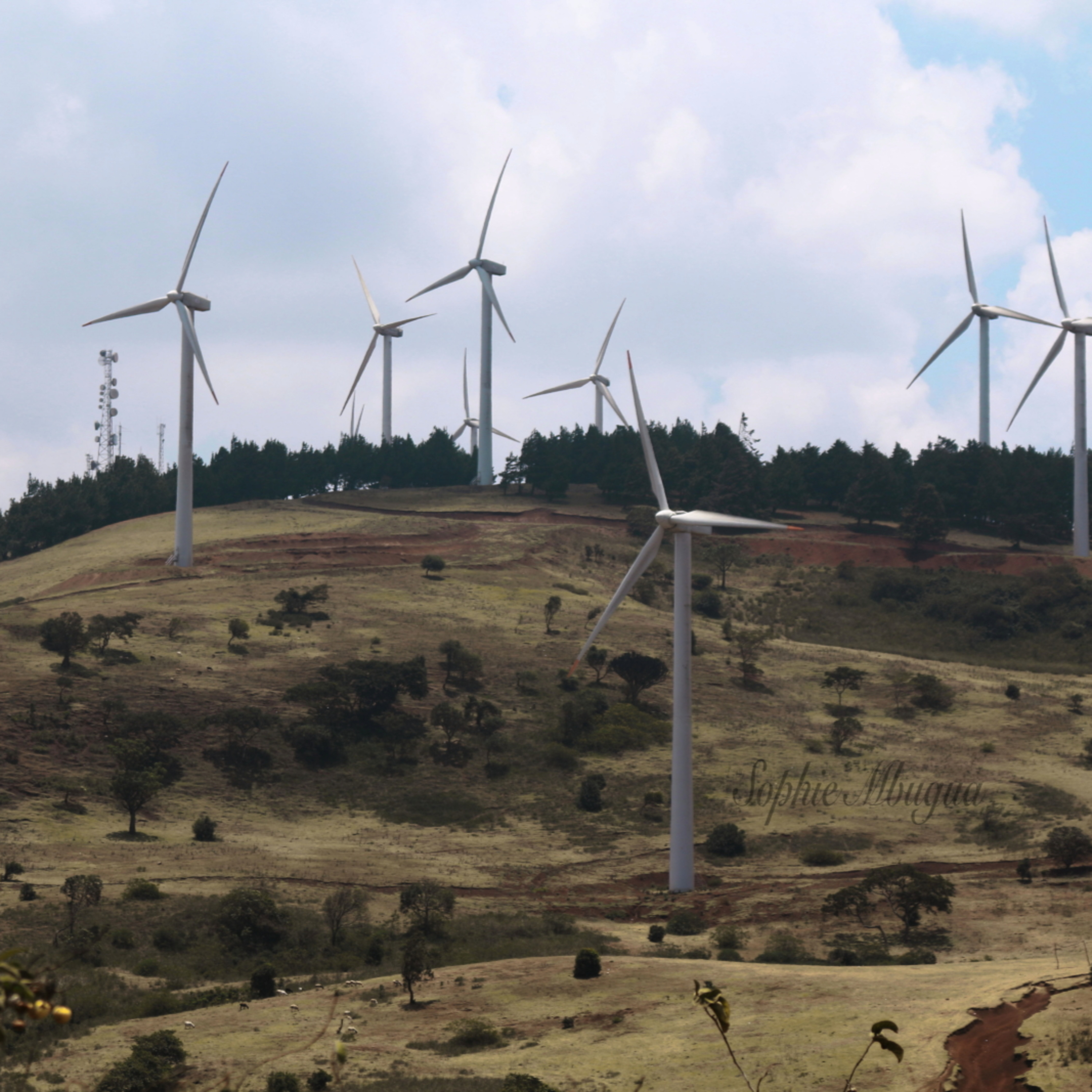
Africa Climate Conversations.Why is sub-Saharan Africa so Energy poor?Of the 789 million people without access to electricity globally, nearly 600million of them live in sub-Saharan Africa. Countries like Kenya, Ghana, Eswatini, Ethiopia have made great efforts in electrification but still Sub-Saharan Africa is the least energised part of the world despite its abundance in energy sources like solar, wind, geothermal and difference fossil fuels.
Linus Mofor a senior environmental officer in charge of Energy, Infrastructure and climate change at the Africa climate Policy Centre of the Economic Commission for Africa explain how countries can address the energy deficiency and why investment in renewable energy is critical...
2020-06-3036 min
Africa Climate Conversations.Covid19 - Economic Impacts on Africa.The UN Economic Commission for Africa (UNECA), estimates that Covid-19 could cause Africa’s economies to shrink by between 1.8 – 2.6 percent possibly pushing 27 million people into extreme poverty. This week on the Africa Climate Conversations, listen to Mr. Stephen Karingi, Director, Regional Integration and Trade at the UNECA answer what are the most affected sectors, why is diversification of economies critical for Africa economic recovery and growth, what opportunities exists in the African Continental Free Trade Area (AFCFTA), and why digital economy and the African youth critical to economic recovery.
2020-06-2330 min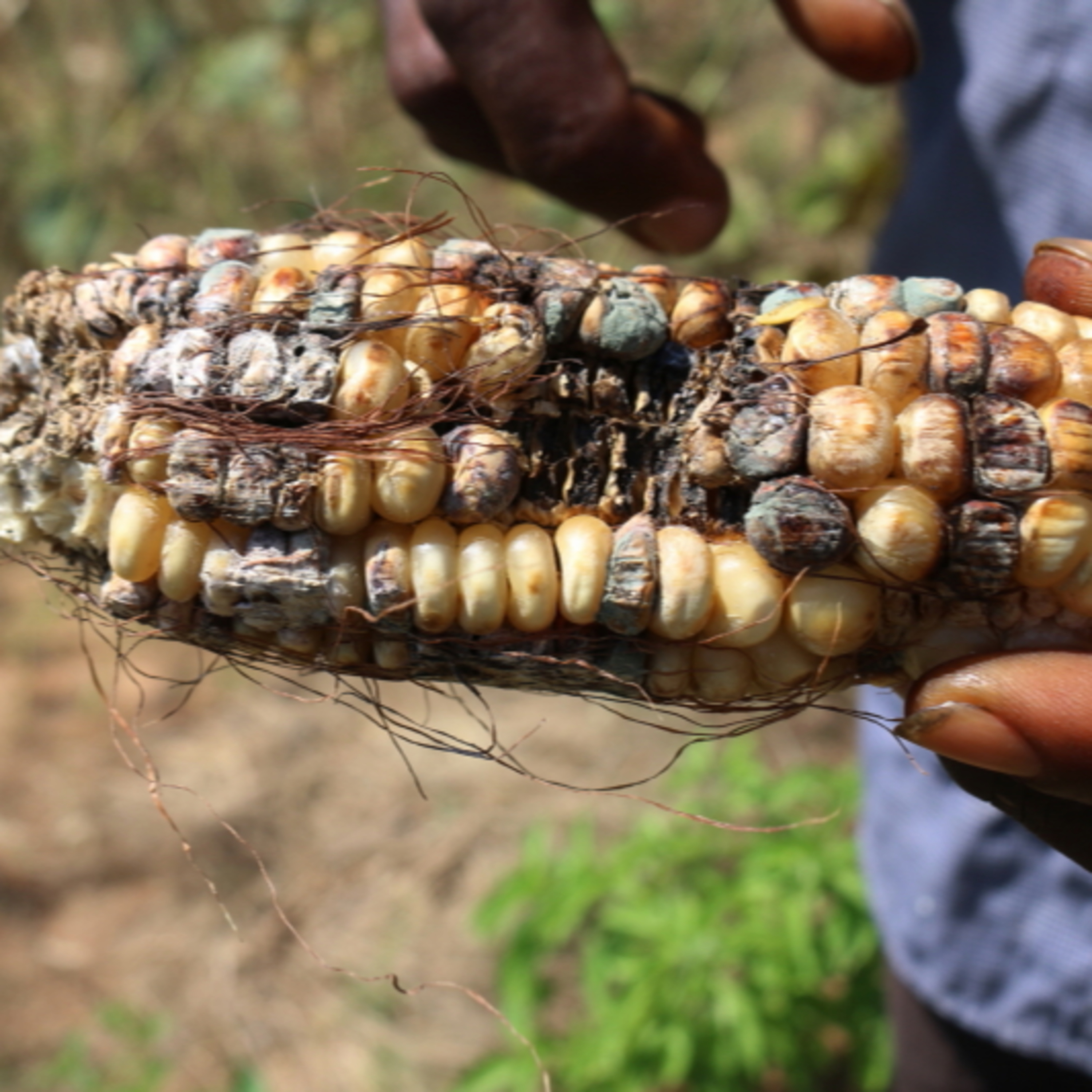
Africa Climate Conversations.Covid-19 and Climate Change: How can Africa build better given the twin challenge?On average climate change is costing African economies 2 to 3percent of their GDPs. This is according to the United Nations Economic Commission for Africa (ECA). On the hand, Covid19 is costing these economies GDPs between 1.7 to 2.7 percent. On this episode, Jean-Paul Adam the Director for Technology, Climate Change and Natural Resources Management at ECA, shares how best African nations can build better to deal with the twin of climate change, and Covid-19 as well as funding this recovery.
2020-06-1634 min
Africa Climate Conversations.Climate Effects: What can you do?A report by the Africa Climate Policy Centre (ACPC) of the United Nations Economic Commission for Africa (UNECA), on economic growth, development and climate change in Africa, stipulates that without action, climate change would impede development across Africa. According to the report, inaction could cost the Western and Eastern Africa nations up to about 15 per cent of their GDP by 2050.
But, Dr Zablone Owiti, a Climate Scientist with SouthSouthNorth (SSN) says, investing in balcony gardens in the cities, leaving green spaces, tapping biogas for livestock keepers, behaviour change among others would go a long way in cooling o...
2020-06-0927 min
Africa Climate Conversations.Climate Change: an IntroductionDroughts, and floods in Africa has intensified. In about three months, flooding has affected 1.3 million people in the Horn of Africa according to the United Nations Office for the Coordination of Humanitarian Affairs (UNOCHA). Many weather stations in the Horn of African countries are recording their highest amounts of rainfall in 40 years. This episode explains the difference between weather and climate, defines climate change and explains why the East Africa Region has been receiving excess rainfall. It also introduces effects climate change has on different sectors.
2020-06-0328 min